Discover Exit Paradox
Exit Paradox
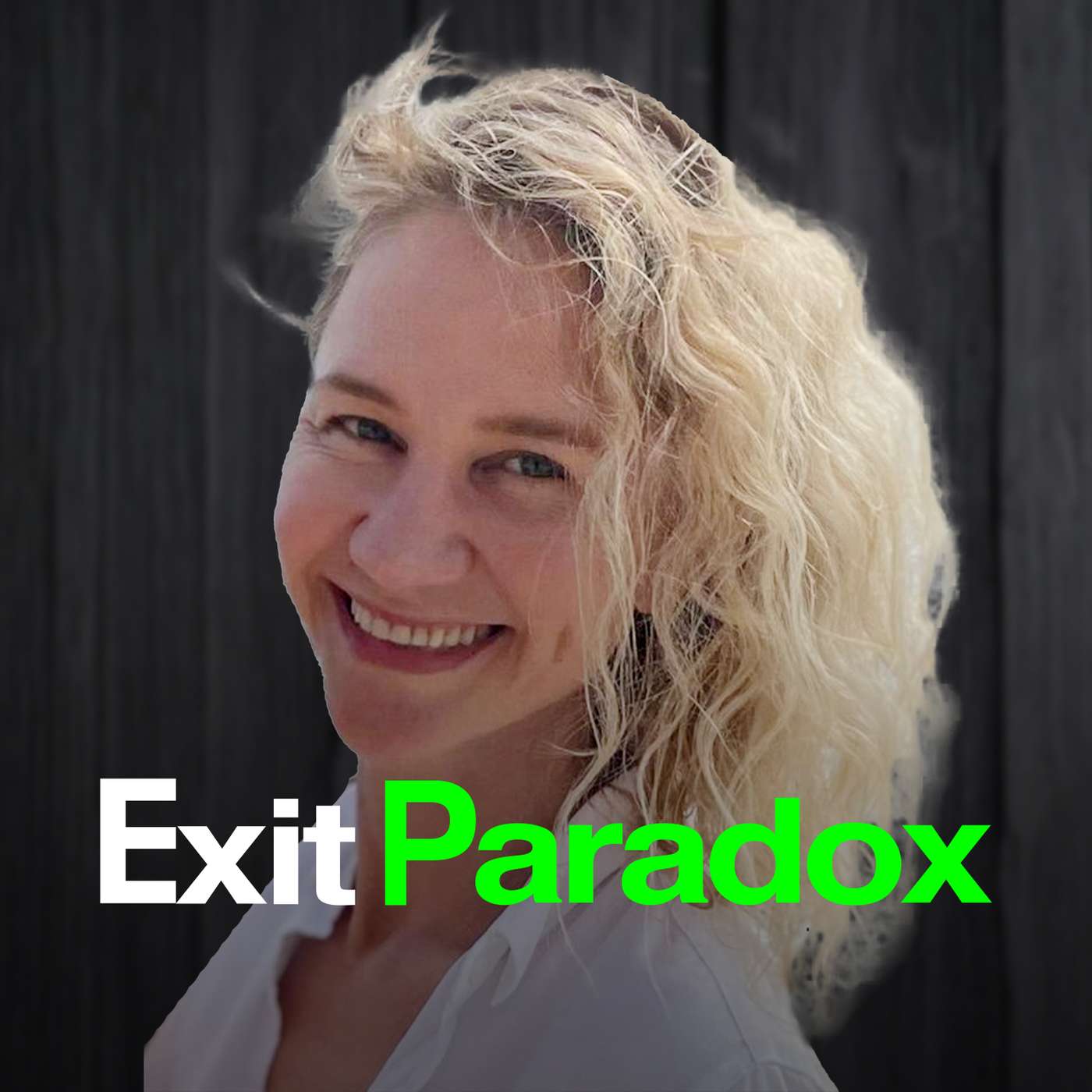
Exit Paradox
Author: Anastasia Koroleva
Subscribed: 14,804Played: 30,822Subscribe
Share
© Anastasia Koroleva
Description
I'm Anastasia Koroleva, a 4x exited founder exploring life after selling a business with some of the most remarkable post-exit entrepreneurs in the world. Together, we rediscover purpose, redefine success, master investing, and build fulfilling lives and families.
Having survived a 9-digit exit, I dedicated a decade to researching the deepest challenges faced by entrepreneurs after a business sale. This podcast is the platform to share my and other exited founders' hard-earned wisdom with the world.
To join our community, please subscribe and share your thoughts. I’d love to hear from you 🙏.
Having survived a 9-digit exit, I dedicated a decade to researching the deepest challenges faced by entrepreneurs after a business sale. This podcast is the platform to share my and other exited founders' hard-earned wisdom with the world.
To join our community, please subscribe and share your thoughts. I’d love to hear from you 🙏.
57 Episodes
Reverse
On this podcast we've explored many dramatic post exit stories. Tales of existential crisis, addictions to drugs, alcohol, sex and obsessive money chasing, extreme sports, mind blowing adventures and long spiritual journeys to faraway lands. Daniel Kivatinos journey is different and just as important to hear. His pause after selling his company didn't push him into a new path. It gave him clarity that he was already on the right one. Daniel built and sold DrChrono, one of the first mobile medical platforms processing billions in medical billing. His work even took him to the White House to help shape healthcare data policy. Today, Daniel is building JustPaid, an AI powered platform changing how businesses manage accounts receivable. In our conversation, Daniel shows us how he built that conviction about who he is and what he truly wants to do. In his case, to keep building highly impactful tech companies right in the heart of Silicon Valley.TIME STAMPS:00:00 – Fulfilment: “Some days I’m a five, some days a six”00:19 – What would it take to feel like a 10?00:58 – The illusion of a “perfect place” in life01:17 – Mountain after mountain: why satisfaction always moves01:37 – Introducing Daniel Kivatinos & his journey from DrChrono to JustPaid02:14 – Can a life ever feel fully “satisfied”?03:11 – Starting the conversation: Daniel joins the show03:17 – How he discovered the podcast & why it resonated03:36 – He sold DrChrono… and then started a new company within a year04:05 – Why founders can’t take long breaks without losing their edge05:40 – Did one year off give enough space for clarity? (Short answer: no.)06:21 – Why entrepreneurs struggle with taking real time off07:57 – The addictive nature of building companies08:40 – Is the second company easier? (Spoiler: no, just “different hard.”)10:10 – Is it ever easier the second time? Unrealistic expectations10:43 – “You can’t hire people to build it for you”11:40 – Even Steve Jobs struggled with his second company13:07 – Why second-time founders often fail14:33 – What Next actually gave Steve Jobs later15:19 – Connecting the dots only works backward15:44 – What Daniel did during his year off16:40 – The Reddit founder told him to move to California17:22 – Early Y Combinator days & why he never returned to NYC17:39 – Considering moving away after the exit18:01 – Missing family and exploring other states23:15 – “What should I do with a year off?” His advice23:59 – Driving across the U.S. twice — unstructured freedom25:05 – The joy of having no plan26:25 – Driving across the Great Salt Lake (the slightly risky part)27:11 – Why unstructured time matters after a big exit27:31 – Realizing he wasn’t “done” with tech or Silicon Valley27:57 – Three years later: is he happy?28:07 – Business as a game, not just work29:32 – Creator vs operator: early-stage founders must be both32:41 – Did his son influence the decision to start another company?33:58 – Modeling meaning and fulfilment for children36:08 – Why he became an entrepreneur in the first place36:14 – Graduating into the 2008 crisis36:40 – Discovering startup life and loving the creative chaos38:23 – It wasn’t about money — it was about people40:49 – Two failed startups in a row: learning without financial reward41:11 – Motivation after exit: still driven by curiosity, not fear or money42:13 – Curiosity as the true engine behind building companies43:17 – Why no single motivator is enough to build a company45:01 – “Stay hungry, stay foolish” — Daniel’s interpretation46:36 – Work-life balance vs. work-life integration46:45 – How he designs balance in his second company48:40 – Why remote culture supports family life49:26 – How much he actually works49:35 – Comparing work intensity: first company vs second50:16 – Why he set up the company so co-founders push each other50:22 – Returning to fulfilment: the moving target51:00 – The mountain metaphor: why fulfilment never stays52:07 – What a “10 day” looks like for Daniel53:42 – Finding joy in the small things53:59 – Why the end goal will never create long-term fulfilment54:18 – “How do you want to be remembered?”54:29 – Family, impact, and acceptance56:16 – Graveyards, billionaires, and perspective on legacy57:13 – Closing reflections & farewell
One of the hardest parts of life after an exit is striking that balance. On the one hand, enjoying the incredible lifestyle we've earned. On the other, protecting and growing the wealth it took so much to build. My friend Justin Donald has lived that tension and he wrote a best selling book about it and created a community called Lifestyle Investor to help others walk the same path. It's easy to dismiss the drive for more financial success once we've already had an exit. But Justin shows us it doesn't have to be a choice and fulfillment can live side by side. Today he shares his story, his hard earned insights and the way he's chosen to live his own life.
Barak Kaufman, founder of Post‑Exit Founders (PEF), grew a 5,000+ member community in four years by word of mouth. He shares what he’s learned from their stories: what works after an exit and what does not. Barak is now partner at VC firm Vine Ventures in New York City and Tel Aviv.Connect with Barak:Linkedin: https://www.linkedin.com/in/barakk/X: @barak-kaufmanPEF: https://pef.xyz/Vine Ventures: https://vineventures.comConnect with Anastasia: Linkedin: https://www.linkedin.com/in/anastasiakorolevaX: @AnasKorolevaNewsletter: https://www.exitparadox.com/blogAbout Anastasia: https://www.exitparadox.com/aboutListen to Exit Paradox Podcast:Apple Podcasts: https://podcasts.apple.com/us/podcast/exit-paradox/id1719806072Spotify: https://open.spotify.com/show/7cC1er82lJBviXe6qjM158
Some exits, they just stop us in our tracks. Not because of the money or the business genius, but because of the radical personal transformation that followed. Dan Berger's story is one of those. Seven years ago, he sold social tables for around $100 million million dollars. And like so many of us, the exit cracked something open. The wealth, the time, the freedom. It didn't bring peace at first. It made things worse. Den spiraled into addiction, sex and porn. But he soon realized the pleasure they gave him was too fleeting, too empty. It did nothing to meet his real needs. That's when Den realized that his Exit wasn't just a big win. It was a chance to create something he'd never truly had. Real sense of belonging. Today, years later, he finally has it. He has finally built it. Then is a story of real courage. The courage to confront his darkest demons. Childhood trauma, bipolar disorder, Chronic anxiety. The patience and resilience to get to the root of his pain. This is one story you really don't want to miss.00:00:00 Intro00:01:55 Life After Selling Social Tables 00:02:25 Loss of Belonging Post-Exit 00:03:53 Failed Attempts to Recreate Work Identity 00:05:05 Belonging & Addiction 00:06:42 Why He Wasn’t Aware of His Needs 00:09:43 The Crossroads Moment and Reinventing Identity 00:13:23 Dan’s Framework for Belonging 00:18:10 Can Our Belonging Archetype Change? 00:22:43 Dan’s Belonging Tank Today 00:25:02 How Dan Defines Belonging 00:32:01 Sex Addiction and Its Roots in Belonging 00:36:22 Getting Help: 12-Step Recovery 00:37:54 Why No One Talks About Sex Addiction 00:39:44 Loneliness, Belonging & the Male Crisis 00:42:52 Raising Boys and Masculinity Today 00:45:14 Switching Gears: The Financial Impact of Exit 00:48:49 Die With Zero: A New Financial Philosophy 00:53:23 Purpose, Not Just Experience 00:56:00 New Venture: Offsite Retreat Venues 00:57:38 Lessons from Social Tables to New Business 00:59:12 Dan’s Business Archetype: Operator 01:00:12 The Risks of Using Own Money 01:01:19 Writing a Book: Process and Pitfalls 01:03:20 What's Special About Dan's Book 01:04:07 How Dan Wants to Be Remembered
Today’s episode is different. My guest isn’t an exited founder but she’s someone we all need.Amy Castoro helps families have honest conversations about wealth—the kind most of us were never taught to have.She shares practical tools from her firm’s 50 years of experience advising some of the wealthiest families in America. Her work focuses on the emotional side of money—how we build trust, protect our closest relationships, speak openly, and prepare the next generation to handle wealth well.We talk about raising children with money and how to rethink our own relationship with it after a successful exit.It’s one of the most useful conversations I’ve had. Amy’s views challenged my own.I hope it helps you as much as it helped me.00:01:59 Amy’s Background & Work with the Williams Group00:03:30 Why 70% of Families Fail at Wealth Transition00:05:18 Trust, Communication & Heir Preparedness00:08:18 How Early Should Kids Be Taught About Wealth?00:10:31 Age-Appropriate Conversations About Philanthropy00:13:17 Creating Motivation Without Financial Desperation00:16:23 Responding to Kids Asking About Inheritance00:20:35 Involving Children in Wealth Management Early00:22:33 Teaching Kids to Say “No” & Handle Peer Pressure00:26:44 Skills Young Heirs Often Feel They Miss00:29:09 Should Children Be Encouraged to Be Entrepreneurs?00:32:28 What If the Family Came into Wealth Late?00:36:04 First Family Meeting: What to Discuss00:37:28 Re-engaging the “Unmotivated” Youngest Child00:40:29 Coaching vs. Therapy in Wealth Transition00:41:41 Families with Young Kids: How to Start Early00:44:33 Relationship Skills & Communication Patterns00:47:06 Why the Skills That Build Wealth Won’t Transition It00:48:20 Balancing Entrepreneurship & Parenting Post-Exit00:50:39 Modeling Purposeful Wealth, Not Just Growth00:54:36 What Successful Families Say the Purpose of Wealth Is00:56:49 Defining Family Values Around “Education”00:58:41 Reconciling Different Values in the Family00:59:50 Allowance Strategies in Wealthy Families01:01:38 Knowing When to Shift from Parent to Mentor01:03:28 Creating & Living a Family Mission Statement01:06:06 New Program: Next Gen Leaders01:07:25 Common Mistakes Families Make Around Wealth01:10:34 Should Families Hold Regular Meetings?01:12:37 The #1 Shift Families Must Make for Success01:13:38 Amy’s Recommended Books on Family Wealth01:15:15 Final Thoughts: Preparing the Family for the Assets
My friend Jay Radia doesn’t just build businesses—he builds momentum.He’s a three-time tech founder and a prolific angel investor.Since his last exit two years ago, he’s been building Blissgrowth—a venture studio that partners exclusively with exited founders.Why did he choose this path? What has he learnt so far? Was it the right move?For a while, Jay also co-hosted The Joyful Entrepreneur Podcast—a top 10 show about success and happiness.Today, we explore how Jay is designing his venture studio not just for financial success—but for joy, purpose, and meaning.And what he’s learned from both his own journey and the many post-exit founders he works with._____________________________________________________00:00:00 - Introduction00:04:23 - Emotional journey post-exit00:06:00 - Experiencing emptiness despite success00:07:15 - Defining the Post-Exit journey (Pause, Reset, New Chapter)00:08:15 - Avoiding the corporate trap post-sale00:09:35 - Discovering he's not a CEO type00:10:15 - Founding Blissgrowth and love for early-stage building00:11:30 - Venture Studio vs Angel Investing and Accelerators00:13:15 - Pros and cons of running a Venture Studio00:15:15 - Team dynamics and focus of Blissgrowth00:16:45 - Common misconceptions about Venture Studios00:17:45 - How his studio compares to others00:19:15 - Angel investing vs Venture Studio involvement00:21:15 - Journey from emptiness to fulfillment00:23:15 - Connecting with intuition through stillness and yoga00:25:15 - Daily practices to cultivate inner clarity00:26:60 - The power of quiet and introspection00:28:15 - Rewiring mindset and deep inner work00:30:00 - Changing his relationship with fear00:31:30 - From fear to freedom and growth00:33:00 - The psychology of purpose and contribution00:34:15 - Observations on other exited founders and finding purpose00:35:45 - Why decoding purpose is a unique journey00:37:15 - Role of spirituality and Indian heritage in self-discovery00:39:45 - Spirituality as a path to love and connection00:41:15 - Overcoming skepticism and redefining success00:43:15 - AI, intellect, and spiritual work00:44:15 - Creating and renaming his podcast: Joyful Entrepreneur00:46:15 - Why he paused podcasting despite success00:47:45 - Lessons learned from podcasting00:49:15 - The power of public self-expression for exited founders00:50:45 - Normalizing post-exit struggles in the founder community00:52:15 - Redefining success after financial freedom00:53:45 - Jay’s 5-pillar framework for purpose00:55:45 - How Blissgrowth aligns with his purpose00:57:15 - Building to scale vs building to exit01:00:15 - Should founders build with an exit in mind?01:01:45 - Jay’s commitment to Blissgrowth long-term
Linda Abraham is one of the most extraordinary women I’ve ever met. She’s in a class of her own.She’s been navigating the post-exit world for 28 years, ever since her first exit.And what an exit it was: a 5X return to investors in just two years!She went on to lead her second company, comScore, from founding to IPO—building it into a global powerhouse in digital analytics, with offices in 23 countries.Today, Linda runs Crimson Capital, investing her family’s money in early-stage tech companies, and serves on several boards, including Tiger 21.But what blows me away most is that she built all of this while raising four children—and thoughtfully nurturing deep, loving relationships with each of them.This episode is about an extraordinary entrepreneur who managed to do it all—and built a life that’s not just financially successful, but deeply, holistically fulfilling.There is so much we can all learn from her!00:00 - Introduction and reflections on Linda’s first business exit03:34 - Selling Peregrine Technologies and emotional response04:36 - Starting the next venture and skills assessment05:55 - Creating comScore and early funding story08:11 - Frugality and surviving the dot-com crash10:30 - Pivot to audience measurement and analytics11:36 - Selling data to financial institutions like Citadel11:59 - IPO and financial outcomes for the team13:00 - Motivations beyond money and public company growth14:01 - Leaving comScore and reflections on career satisfaction15:10 - Post-exit transition and board work17:09 - Realizing need for a break and pulling back from overcommitment18:19 - Shift to board advisory roles and family balance18:49 - Motherhood and managing with four children20:09 - Family-first values and support system21:48 - Daily decision-making and sacrifices24:49 - Health and lifestyle improvements post-exit27:25 - Transitioning from entrepreneur to investor29:01 - Challenges in board work and mindset shifts31:18 - Finding joy and variety in board roles33:42 - Investing in second-time founders and founder motivations38:15 - Raising children with wealth and aligned values40:50 - Reflections on adult children and family discussions43:07 - Delaying wealth conversations and individual approaches46:21 - Continuing involvement in husband’s new startup48:04 - Evolving motivations and contribution style49:42 - Creating balance through mindful time management52:45 - Focus on impact and strategic contribution56:12 - Mentorship, support, and satisfaction in giving back57:60 - Work, family, community: expanded arc of purpose59:58 - How Linda wants to be remembered01:01:14 - Conclusion and farewell
My guest today is Adam Rossi. He sold his company, Platinum Solutions, 14 years ago and walked away with life changing wealth. But what hit him first after his exit was regret. We talk about how he came to terms with his new reality, searched for his new purpose, and dealt with losing his found identity. My favorite part of Adam's story is that he built his company with his wife, Leila, and their marriage didn't just survive. Building and selling the business, it actually got stronger through it. We talk about what Adam would do differently now that he's had 14 years to reflect. Adam's story is fascinating and full of hard won wisdom. I'm so grateful he shared it.00:00:00 – Introduction & Adam’s Exit Story00:01:06 – Why Exited Founders Make Bad Investors00:05:15 – From Angel Investing to Private Equity00:09:00 – Why Most Second Companies Fail00:10:15 – Lessons from a Failed Acquisition00:12:07 – Buying vs. Building a Business00:14:34 – Regret After Exit and Finding New Purpose00:17:27 – Sacrifice, Purpose & The Next Big Thing00:20:18 – Impact, Meaning & Philanthropy Struggles00:23:44 – Coaching Entrepreneurs as a Calling00:25:18 – Why He Hasn’t Jumped into a Big Mission Yet00:27:00 – Kids, Family, and Timing the Next Move00:29:00 – Angel Investing: Rise and Decline00:31:06 – The Illusion of Control in Angel Investing00:32:35 – Advice for New Angel Investors00:34:45 – Lifestyle Balance Post-Exit00:36:00 – The Grind Years: 20-Hour Days and Stress00:38:00 – Building a Business with His Wife00:41:30 – Division of Labor and Complementary Skills00:43:00 – Conflict Resolution in a Husband-Wife Team00:44:45 – Why They Didn't Start a Second Business Together00:46:15 – Raising Entrepreneurial Kids with Wealth00:50:45 – The Only Real Passive Investing Strategy00:53:26 – Life Rules: Wealth vs. Freedom00:56:40 – Is Balance Between Mission and Freedom Possible?00:58:45 – Mental Health After the Exit01:01:00 – Why He Shares His Story Publicly01:03:15 – A Book for His Kids and Maybe the World01:07:17 – Will He Publish It?01:09:41 – How Adam Wants to Be Remembered01:10:36 – Closing Thanks & Final Reflections
Mike Brown's post-exit journey led him from chaos to clarity, but not right away. He had to go through a painful divorce, a business failure, financial losses and emotional turmoil.Today we are talking about what he's learned and why he decided to dedicate himself to coaching. 🔗 CONNECT WITH MIKE:🎥 YouTube Channel - @mbrown_co 🐦 X (Twitter) - https://x.com/mbrown_co📸 Instagram - @mbrown.co💻 Website - https://unbreakablewealth.com/👥 Linkedin - /mikebrownactual TIME STAMPS:00:00:00 – Introduction00:00:37 – The Aftermath of Selling a Business00:02:07 – Reality Hits: The Post-Exit Crisis00:03:19 – The Connection Between Entrepreneurship and Divorce00:05:00 – Chasing Achievement vs. Finding Purpose00:06:40 – Could He Have Saved His Marriage?00:08:33 – What’s Next After the Exit?00:09:59 – Why Coaching and Why It Almost Didn’t Happen00:10:34 – A Costly Distraction: A Failed Investment00:12:30 – The Emotional Weight of Money and Investing00:15:00 – A Brutal Financial Loss: Losing $100K a Month00:18:00 – The Transition from Founder to Investor00:20:15 – The Importance of Financial Safety Nets00:24:15 – Balancing Risk and Stability00:29:00 – The Concept of Wealth Beyond Money00:30:06 – Unlimited Freedom vs. Purpose00:32:03 – Defining Purpose and Service to Others00:36:00 – The Danger of Retiring Too Early00:40:00 – Lessons from Childhood: How Early Experiences Shaped His Drive00:46:00 – Parenting and Entrepreneurship00:52:25 – Post-Exit Traps to Avoid00:57:45 – Rebuilding Structure and Identity After an Exit01:06:00 – Final Lessons: The Power of Stillness01:07:22 – How Mike Wants to Be Remembered
VCs notoriously avoid investing in married couples, fearing that personal conflicts could sink the business. Yet, the Lazerows defied that norm—building not just one, but two successful companies together, culminating in an $800M exit.They didn’t just make it work; they mastered it—and then wrote a book about it.Today, we’ll dive deep into what exactly they did to make it work—and what they wish they hadn’t.TIME STAMPS:00:00:01 - Introduction00:00:14 - Learning from Failure vs. Success00:00:27 - Building a Business as a Married Couple00:01:08 - First Meeting and Early Impressions00:02:30 - Life After an Exit00:03:08 - Golf.com: The First Big Exit00:06:58 - The Struggles of Entrepreneurship00:09:14 - The Emotional Toll of Entrepreneurship00:10:35 - Taking a Break After an Exit00:11:14 - Was Their First Exit Life-Changing?00:12:54 - Why Start Another Business?00:14:31 - Entrepreneurship with Three Kids00:16:47 - Why Entrepreneurs Keep Going00:19:41 - Becoming Investors00:23:20 - The Hardships Behind Entrepreneurship00:28:17 - Coping with Post-Exit Stress00:31:41 - Entrepreneurs and Mental Health00:34:55 - Reframing Anxiety & ADHD as Superpowers00:38:46 - The Dark Side of Entrepreneurship00:44:01 - Work-Life Balance: Do They Have One?00:48:01 - Michael’s Attempt at a Painting Career00:50:12 - Filtering Opportunities00:52:28 - Navigating Marriage After an Exit00:55:15 - Raising Kids with Wealth01:02:11 - Teaching Kids About Money and Responsibility01:09:04 - The Purpose of Their Book01:11:20 - Final Question: How Do You Want to Be Remembered?🔗 CONNECT WITH KASS AND MIKE:👥 Linkedin KASS - https://www.linkedin.com/in/kasslazerow/🐦 X (Twitter) KASS - https://x.com/kasslazerow👥 Linkedin MIKE - https://www.linkedin.com/in/lazerow/🐦 X (Twitter) MIKE - https://x.com/lazerow💻 Website (personal) - https://www.kassandmike.com/I📸 Instagram: https://www.instagram.com/kassandmike/TikTok: https://www.tiktok.com/@UCgLzz0yep6lUaE5i62zMXTw 🎥 YouTube Channel: https://www.youtube.com/@UCgLzz0yep6lUaE5i62zMXTw 🔗 CONNECT WITH ANASTASIA: 🎥 YouTube Channel - https://www.youtube.com/@UCaoC4W9E2Vopnkd-K3dOw7Q t🐦 X (Twitter) - https://x.com/AnasKoroleva 📸 Instagram - https://www.instagram.com/anastasiashoot💻 Website - https://www.exitparadox.com🗞️ Newsletter - https://www.exitparadox.com/blog👥 Linkedin - https://www.linkedin.com/in/anastasiakorolevaTikTok - https://www.tiktok.com/@anastasia.korolev7
My guest today, Josh Payne, has developed fascinating insights and systems to do just that. Josh sold his company, Stack Commerce, for nearly $100 million 4 years ago. A huge milestone - but as all exited founders know, the real story starts after the deal is done.Today, he’s building again - but with a completely different approach.Josh isn’t optimizing for another massive exit. He’s after something bigger. So let’s see what we can learn from this fascinating man.00:00:00 Introduction00:00:45 Selling StackCommerce: Was It a Happy Moment?00:02:00 The Emotional Impact of Selling a Company00:03:30 Why Money Didn’t Solve Everything00:05:15 Prioritizing Family After the Exit00:06:30 Leaving the Company: A Tough Identity Shift00:07:45 Taking a Healing Family Trip00:09:00 Training for an Ironman & Overcoming Mental Barriers00:12:30 Decoupling Identity from Business00:14:00 Leadership & Purpose Beyond Business00:16:00 Sacrifice vs. Suffering in Entrepreneurship00:18:45 Ironman Training: Lessons in Overcoming Fear00:22:00 The Challenge of Finding a New Purpose00:23:45 Why Start Another Business After an Exit?00:27:00 Learning to Build a Company Without Fear00:30:00 The Difference Between First and Second Businesses00:33:00 Finding a Sustainable Way to Build Again00:35:00 Balancing Business & Personal Life After Exit00:38:15 Why Many Second Businesses Fail00:42:00 The Importance of Motivation in a New Startup00:45:30 Avoiding the Trap of Losing Interest Midway00:48:00 The Role of Peer Groups Like Tiger 2100:50:30 How Long Does It Take to Truly Adjust After Exit?00:53:00 Raising Kids With Wealth: Teaching Responsibility00:54:00 Closing Thoughts & Future Plans
What would you do if you sold your company for 300 million dollars? Retire? Explore the world? Do all these other things you had no time to do while building a business?This is not what my friend Alex Macdonald did when he sold his company Velocity Black two years ago. In fact, Alex made it quite impossible for himself to have any kind of post-exit sabbatical. Why?Well, Alex has seen enough of his post-exit founder friends getting stuck in full-blown existential crisis after they sold their company. He didn't want that to happen to him. In this episode, we're going to explore why he made this decision, whether two years later he still feels it was the right one, and how he applies the lessons from his first full entrepreneurial cycle to building his new business, appropriately called SQL.00:00:00 - Introduction00:02:25 - The Story of Velocity Black00:07:46 - Selling Velocity Black to Capital One00:07:05 - Why Alex Started Another Business Before Selling His First One00:10:52 - The Founder’s Existential Crisis After an Exit00:12:45 - The Shortage of Builders, Not Investors00:14:19 - Work-Life Balance & Health After an Exit00:16:21 - Lessons from Running a 24/7 Business00:19:52 - Changing Approach to Work with Sequel00:21:19 - Different Approaches to Post-Exit Businesses00:24:19 - Sequel: Building a Next-Gen Goldman Sachs00:27:26 - Managing Motivation After Financial Success00:31:03 - Fulfillment vs. Happiness: What Really Matters?00:33:15 - The Biohacking & Longevity Obsession00:35:51 - Community & Meaning in Life After an Exit00:39:13 - The Idea of Creating a New Religion00:45:46 - The Role of Structure & Responsibility in Life.00:54:08 - The Challenge of Freedom After an Exit00:57:46 - Angel Investing & How It Led to Sequel01:03:42 - Helping Athletes Transition Beyond Their Careers01:07:37 - Building a Legacy vs. Just Making Money01:10:52 - Avoiding Mistakes in Early-Stage Investing01:15:30 - The Power of Influence in Investing01:20:05 - Sequel’s Future Plans & Scaling the Model01:25:00 - What Drives Long-Term Success?01:30:10 - Final Thoughts & Advice for Founders
My guest today is Cory Janssen, co-founder of Investopedia. Cory sold the business 17 years ago, but what came next was far from the smooth ride he or anyone might have expected. He spent years in painful trial and error, half-heartedly starting new ventures while avoiding real work, experimenting with professional investing and retirement. None of it satisfied his deeper need for the sense of purpose he felt while building Investopedia. Everything changed when Cory went back to building and working. But this time it felt different. His focus shifted toward unselfish, larger impact goals. His new non-monetary motivation gave him powerful drive and a clear sense of direction and alignment. Today, Cory finally feels deeply fulfilled, energised and joyful. There is so much to learn from Cory's story and we are so lucky he agreed to share it openly. It's rare, raw and packed with specific practical insights for anyone navigating the complexities of post-exit life. _____________________________________________________ 00:00:00 Introduction00:01:40 Guest Introduction: Cory Janssen’s Story00:04:00 Founding Investopedia: The Early Days00:10:55 Deciding to Sell Investopedia00:22:15 Regret After Selling: Financial and Emotional Impact00:35:10 Working for the Acquirer: Lessons Learned00:46:50 Negotiating the Sale Process: Tips for Founders00:56:20 Post-Exit Struggles: Managing Wealth and Purpose01:07:10 Challenges of Professional Investing01:15:30 Rediscovering Passion for Building: Transitioning to AI01:26:15 Balancing Parenthood and Entrepreneurship01:37:30 Raising Kids with Wealth: Avoiding Entitlement01:40:00 Closing Reflections and Key Takeaways
This interview is a special one for me. Michael Miller has been a friend for over 15 years and has made a huge difference in my life. He's a Vedic meditation teacher who taught me to meditate at a time when I was searching for clarity and tranquility following a life-changing exit. Since then, meditation has been my go-to tool for healing, finding peace, processing ideas, and making decisions. And it's not just me, people like Jack Dorsey, Bill Gates, Arianna Huffington, and Ray Dalio all credit meditation for helping them on their own post-exit journeys. Before discovering his calling as a meditation teacher, Michael had a successful business career. That experience gives him a unique ability to explain meditation in ways that make sense to us entrepreneurs. If you've tried meditation before, but let it slip, this might just inspire you to pick it back up. _____________________________________________________ 00:00 The Healing Power of Meditation02:46 Personal Journeys and Transformations06:10 The Science Behind Meditation11:54 Meditation as a Decision-Making Tool17:49 The Ripple Effect of Meditation24:06 Creating Peace from Within40:07 The Ripple Effect of Inner Peace44:51 The Journey of Personal Growth Post-Success49:52 Addiction as a Spiritual Search52:15 From Material Success to Fulfillment59:33 Designing a Toolbox for Holistic Leadership01:13:30 The Journey of Self-Discovery01:18:05 Navigating Life Stages and Transitions01:23:25 Embracing Discomfort for Growth01:29:35 The Role of Community and Giving Back01:34:08 Traveling with Purpose01:39:23 Understanding Consciousness01:42:34 Defining Purpose and Connection
My dear friend Sarah Douglass sold her incredibly successful e-commerce business three years ago, achieving the financial freedom she had always dreamed of. But soon after, she found herself grappling with a new challenge: balancing her newfound success with an ever-deepening desire for contentment and a powerful drive to create impact. In today’s conversation, Sarah shares her journey with disarming authenticity, opening up about her deepest struggles. We explore the unexpected void left by success, the difficulty of resisting the urge to immediately start something new just to feel productive, and her shift from chasing external milestones to embracing intentional living—rediscovering who she is as a whole being, not just as an entrepreneur._____________________________________________________ 00:00:00: Introduction and greetings00:01:04: Sarah's business journey beginnings (Music school)00:01:39: Transition to selling online (Discovery at dinner)00:02:04: Starting with camping gear (Wise Owl Outfitters)00:02:56: Challenges and operations (Traveling to China)00:03:40: Balancing family and business (Moving and kids)00:04:23: Working with her husband00:05:21: Husband's role and career shift (Becoming a painter)00:04:37: Decision to sell the business00:05:00: Influences and reasons for selling00:07:01: Financial freedom and exiting strategy00:08:16: The selling process (Timeline and logistics) 00:09:56: Reflections on the buyer's bankruptcy 00:11:06: Emotional impact of selling 00:12:10: Post-sale challenges and burnout 00:13:23: Realizations and health impact 00:14:40: Personal and existential reflections 00:16:55: Seeking and understanding contentment 00:18:37: Advice on spirituality and life direction 00:19:06: Initial thoughts on spirituality and personal development 00:19:23: Exploring different avenues for growth 00:19:46: Impact of personal coaching and physical health 00:20:36: Reflection on life's purpose post-exit 00:21:32: Evaluating new opportunities and the allure of starting new businesses 00:25:00: Importance of being helpful to others 00:27:18: Finding balance in life and prioritizing oneself 00:27:50: Balancing motherhood and business 00:32:17: Handling wealth and teaching children about money 00:34:42: Shifts in business motivation without the need for money 00:38:17: Importance of having a supportive team 00:39:08: Pursuing new, exciting projects 00:40:02: Balancing current business with new ventures 00:40:26: Benefits of taking extended trips 00:42:04: Discovering oneself through new experiences 00:46:04: Reflections on legacy and impact on others 00:48:02: Interpretation of "Stay hungry, stay foolish" 00:51:03: Struggles of balancing business and family as a woman 00:56:06: Comparison of post-exit life to athletes' career transitions 00:56:38: Feeling lonely during the process 00:56:52: Searching for information online 00:57:15: Conclusion and thank you
Tim Schumacher is the exited founder and former CEO of Sedo, one of the world's largest domain marketplaces, which he led for over a decade before stepping down 13 years ago. What sets Tim apart is how he mastered the elusive work -life balance while still building his company, something most entrepreneurs only dream of. This balance helped him avoid the emotional rollercoaster that so many of us face after a successful exit. In this episode, Tim shares his thoughts on keeping life supernormal, the bootstrapper mindset, being a scaler versus a zero-to-one founder, and finding new purpose in tackling climate change._____________________________________________________00:00:00 - 00:00:39 Introduction00:00:39 - 00:02:58 Tim Schumacher's Exit and Reflections00:02:58 - 00:05:58 Transition to New Ventures00:05:58 - 00:07:28 The Importance of Rest and Work-Life Balance00:07:28 - 00:09:51. Personal Interests and Climate Change00:09:51 - 00:11:55. Evolution of Motivation and Values00:11:55 - 00:16:38. The Bootstrap Mindset00:16:38 - 00:18:28. Balancing VC and Bootstrap Approaches00:18:28 - 00:25:30. Scaling vs. Building from Scratch00:25:30 - 00:29:37. Financial and Purposeful Integration00:29:37 - 00:31:12 Managing Identity Change Post-Exit00:31:12 - 00:37:05 Work-life Balance and European Influence00:37:05 - 00:36:59. Entrepreneurial Legacy and Family00:36:59 - 00:42:20. Reflecting on Business Strategies and Learnings00:42:20 - 00:45:26 Revisiting Entrepreneurial Failures00:45:26 - 00:47:09. Cultural Exposure and Entrepreneurial Growth00:47:09 - 00:49:29 Purpose and Motivation Beyond Business
Rick Eigenbrod is a deeply respected thinker in the post-exit world. A clinical psychologist and co-author of the classic Yale paper What’s Next: The Entrepreneur’s Epilogue, he’s spent years guiding founders through life after the exit as an executive coach. In this conversation, we get into why Rick believes a “death of who we used to be” and a subsequent "re-birth" are inevitable post-exit, and how resisting these changes only adds to the struggle. Rick generously shares the tools and exercises he’s found most effective in navigating this transformative process. We also explore the grip of dopamine addiction, the healing power of legitimizing post-success frustration, simple ways to reconnect with our natural curiosity and playfulness, and the bittersweet reality of leaving some people behind as we experience exponential personal growth._____________________________________________________00:00:00: Introduction 00:00:21: The paradox of success 00:00:43: Rick's background and contributions 00:01:04: Discussion on post-exit rebirth and struggles 00:01:12: Exploring dopamine addiction and post-success frustrations 00:02:30: Exploring the post-exit maze 00:02:45: Rick's background and experience with exited founders 00:04:47: Rick's critical event with Vistage group 00:06:09: The price and prize of money and freedom 00:07:52: Reflections on the dual meaning of success 00:08:53: Grappling with post-exit paradox 00:09:41: The "focusing illusion" and the arrival fallacy 00:11:12: The societal pressure to be happy post-exit 00:12:01: Support groups and legitimating experiences 00:13:08: Initial reactions and reflections on the post-exit reality 00:14:31: The societal issue of ignoring exited founders 00:15:33: The lack of support and self-blame post-exit 00:18:00: Escaping the blank sheet of paper 00:19:07: Dealing with loss of motivation 00:20:38: The challenge of striving without a company 00:22:21: Stories of loss of identity and success paradox 00:23:02: The impact on identity and structure post-exit 00:24:29: Avoiding the inclination to fill the void with the same elements 00:25:32: Closing the first business 00:26:18: Question of true desires and freedom paradox 00:27:19: Attempt to create a model from experiences 00:29:06: Journey from identity to meaning and structure 00:30:02: Revisiting personal development opportunities 00:33:16: Financial dangers post-exit 00:35:30: Paradox of money and its role 00:36:09: Evolution of the meaning of wealth 00:41:03: Refusal of the call and negative transfer of learning 00:44:10: Dopamine addiction as an obstacle 00:47:00: Fear of losing entrepreneurial identity 00:49:00: Navigating the journey of death and rebirth in personal growth 00:51:13: Leaving people behind during personal growth 00:52:29: Real journeys begin where fairy tales end 00:54:08: Redefining retirement and societal expectations 00:56:03: Advising young successful entrepreneurs 00:57:23: Identifying and addressing emotional struggles post-sale 00:58:46: Embracing a Mosaic Life 01:00:00: Communicating personal transitions to others 01:03:07: Returning to business after personal growth 01:05:00: Listening for truth, vitality, and fear in decisions 01:07:32: Distinguishing between legitimate fears and psychological barriers 01:09:08: Discernment of skill-related fears in new ventures 01:10:14: Transitioning from entrepreneur to investor 01:13:20: Rediscovering a sense of purpose post-exit 01:14:00: The search for meaning and what matters now 01:16:22: Two ways of knowing and going: Destination vs Direction 01:17:57: Understanding fulfillment and satisfaction 01:19:20: The importance of savoring moments 01:21:00: Stories about finding fulfillment 01:23:26: Legacy question 01:24:00: Discussion about dynamics of arrival 01:27:00: The role of intention in satisfaction
Roy Rubin the visionary founder of Magento, built the open source e-commerce platform from the ground up, leading it to a remarkable exit to eBay in just four years. He then stayed on at eBay for two years, but felt suffocated by corporate walls. That's when it hit him. He barely knew his family anymore. So he and his wife pulled their kids out of school, packed up. and set off on an open-ended journey around the world. For 14 months, they traveled without a plan, letting each destination choose them and discovered what freedom really meant. When they returned, threw himself into the challenge of cycling and completed an Ironman. He also started an angel investment firm to stay intellectually engaged. He has built a beautiful life, but now 13 years post-exit, he is still looking for a new purpose. Roy is torn between the urge to build something big again and the fear of sacrificing his family and lifestyle. Roy is disarmingly open and witty in this conversation. His ideas on personal growth, leadership and fulfillment are fresh and thought-provoking. _____________________________________________________00:00:00: Introduction and greetings00:01:38: Roy's background and introduction to Magento 00:02:3: The founding and growth of Magento 00:03:36: Why Magento was sold to eBay 00:05:28: Reflections on selling Magento 00:05:53: Period after selling: Working at eBay 00:06:51: Challenges and experiences at eBay 00:10:18: Frustrations and limitations at eBay 00:11:07: Difficulty in leading within eBay 00:13:39: Reflections on regret and learning from the experience 00:15:53: Pain of working at eBay 00:18:04: Changes in the leadership team post-acquisition 00:19:25: Leadership style and inspiration 00:22:07: Transparency and leadership approach 00:25:24: Personal reflections post-exit 00:25:48: Reflecting on leaving Magento in 2013 00:28:03: Deciding to leave eBay after Magento's Imagine conference in 2014 00:29:15: The decision to travel with family for 14 months 00:30:00: The travel route through Central America, South America, Asia, and Europe 00:31:03: The travel experience and its impact on family dynamics 00:36:04: Encouragement to other founders to take time off and travel 00:43:02: Discovering new passions post-travel, specifically Iron Man and cycling 00:45:59: Introduction to Personal Journey 00:46:26: Discovering Passion for Sports 00:46:10: Reinventing Post-eBay Life 00:46:44: Starting the Fund During COVID 00:48:04: Transition to Angel Investing 00:51:27: Managing Wealth Post-Magento Sale 00:54:03: Investment Philosophy and Public Equities 00:56:45: The Non-Financial Rewards of Investing 00:58:17: Search for Purpose Beyond Business 01:01:27: Reflection on Purpose During Magento Years 01:03:33: Balancing Life with Current Ventures 01:06:12: Discussing a life of 24/7 dedication 01:06:47: The search for purpose 01:08:01: Meeting new people 01:10:00: The intense journey with Magento 01:12:56: Coping with the transition post-acquisition 01:16:07: Being a creator versus an operator 01:19:11: Future impact and legacy 01:22:10: The desire for more meaningful work 01:26:21: Closing remarks and goodbyes
Ten years ago, Brock Weatherup sold his first company, Pet360.com, to PetSmart for $160 million. It took under five years to build. Since then, he’s had two more successful exits, but two years ago, his journey took an unexpected turn when a life-changing medical diagnosis reshaped his entire outlook. In this episode, Brock talks about the secrets behind his consistent success, what keeps him optimistic and gives him a sense of purpose, and how he cultivates relationships in both business and private life._____________________________________________________ 00:00:00: Introduction00:01:17: Brock's first company exit experience00:03:02: Transition challenges after the exit00:03:31: Acquisition by PetSmart and transition experience00:06:00: Acquisition of PetCoach00:07:45: Brock's role and relationship with PetCoach team00:08:59: Insights on being a startup to grown-up stage founder00:09:41: Brock's involvement in subsequent businesses00:11:00: Selling Great Pet Care due to MS diagnosis00:11:56: Diagnosis impact on priorities and motivations00:13:09: Adjusting to life with MS00:14:38: Post-exit reflections and personal journey00:15:41: Engaging with the business community in new ways00:16:27: Realignment of life and business perspectives00:21:47: Reflections on Sharing Knowledge and Purpose00:22:08: Importance of Meaningful Involvement and Family Time in Purpose00:22:26: Daily Approach to Living Purposefully00:24:10: Impact of Diagnosis on Relationships and Support System00:26:07: Friends' Support During a Difficult Time00:26:54: Tracing the Evolution from First Business to Present00:27:03: Story of the First Business Failure00:30:02: Lessons Learned from Business Failures00:31:15: The Role of Investors and Ethics00:35:59: Challenges of Transitioning from Owner to Employee Mentality00:38:24: Celebrating Failures and Learning from Them00:40:52: Keeping Perspective in Business Ventures00:41:14: Adapting and Learning in New Environments00:42:48: Introduction to the CEO’s vision00:44:09: Staying humble and continuing to learn 00:51:22: Balancing experience and youthful energy 00:52:06: The importance of continuous learning 00:54:01: Past performance vs future success 00:56:15: Building successful teams 00:59:55: The value of the cap table and smart investment decisions 01:02:22: Financial considerations and risk profiles 01:03:27: Final advice for building a new business after an exit 01:02:50: Being intentional in business and personal life 01:03:11: Setting personal intentions and accountability 01:04:25: Specific goals and realistic expectations 01:06:00: Applying business discipline to personal life 01:07:15: Correlation between personal and professional success 01:08:08: Open communication and its importance 01:09:19: Achieving balance and happiness 01:09:22: How to be remembered
Three years ago, Scott Wolfe sold his company, Levelset, for half a billion dollars. Excited and relieved at first, he soon found himself deeply frustrated with the reality that his vision for the business would now never be realized. Scott is a natural creative who sees building a business as an artistic endeavor. It was this intrinsic need to create that sustained him through the grueling journey of building his business. Post-exit, he misses being driven by that vision and working alongside his exceptional, organically built team—one he feels can never be re-created. In this conversation, we explore the pros and cons of starting a sequel, the paradox of purpose, being a true “hedgehog,” the need for authenticity, full-time parenting, and raising entrepreneurial children._____________________________________________________00:00:00: Introduction and welcome to Scott 00:01:11: Reflections on selling the company 00:02:22: Feelings post-sale and personal identity 00:05:01: Comparing business to art 00:06:58: Transition from attorney to entrepreneur 00:08:57: Founding and growing Levelset 00:11:15: Key roles and talents in the company 00:13:21: Starting a new business and family considerations 00:19:00: Debating the reasons to start another business 00:21:02: Seeking purpose and fulfillment 00:23:21: The necessity of creativity and purpose 00:24:06: The challenges of balancing personal and professional life 00:25:01: The paradox of purpose 00:26:31: Rebuilding life and purpose post-exit 00:27:56: Adjustments and surprises after exiting a company 00:29:02: Facing mortality and existential reflections post-exit 00:31:36: Managing personal expectations and regrets 00:34:07: Reflecting on unfinished business and the non-finality of accomplishments 00:38:03: The journey and appetite for creative endeavors 00:40:44: Exploring new experiments and hobbies post-exit 00:42:28: Writing and reflecting on vision after business exit 00:43:32: Building and helping companies after the exit 00:45:08: Structuring the company's vision 00:45:48: Financial exit and its impact 00:47:25: Managing newfound wealth 00:54:58: Becoming a cautious investor 00:56:00: The hedgehog concept 00:58:53: The influence of entrepreneurial family upbringing 01:01:42: Wishing entrepreneurial experiences for children 01:05:32: The importance of self-reliance and vision for entrepreneurs 01:06:22: Strategy Development and Investment Philosophy 01:08:07: Changes in Motivation Over Time 01:10:40: Current Motivation and Challenges 01:13:36: Inspiration and Choosing People to Surround Yourself With 01:14:21: Building a Network Organically 01:16:33: The Importance of Purpose and Motivation 01:17:49: Reflections on Authenticity and Meeting New People 01:18:04: Legacy and How to be Remembered


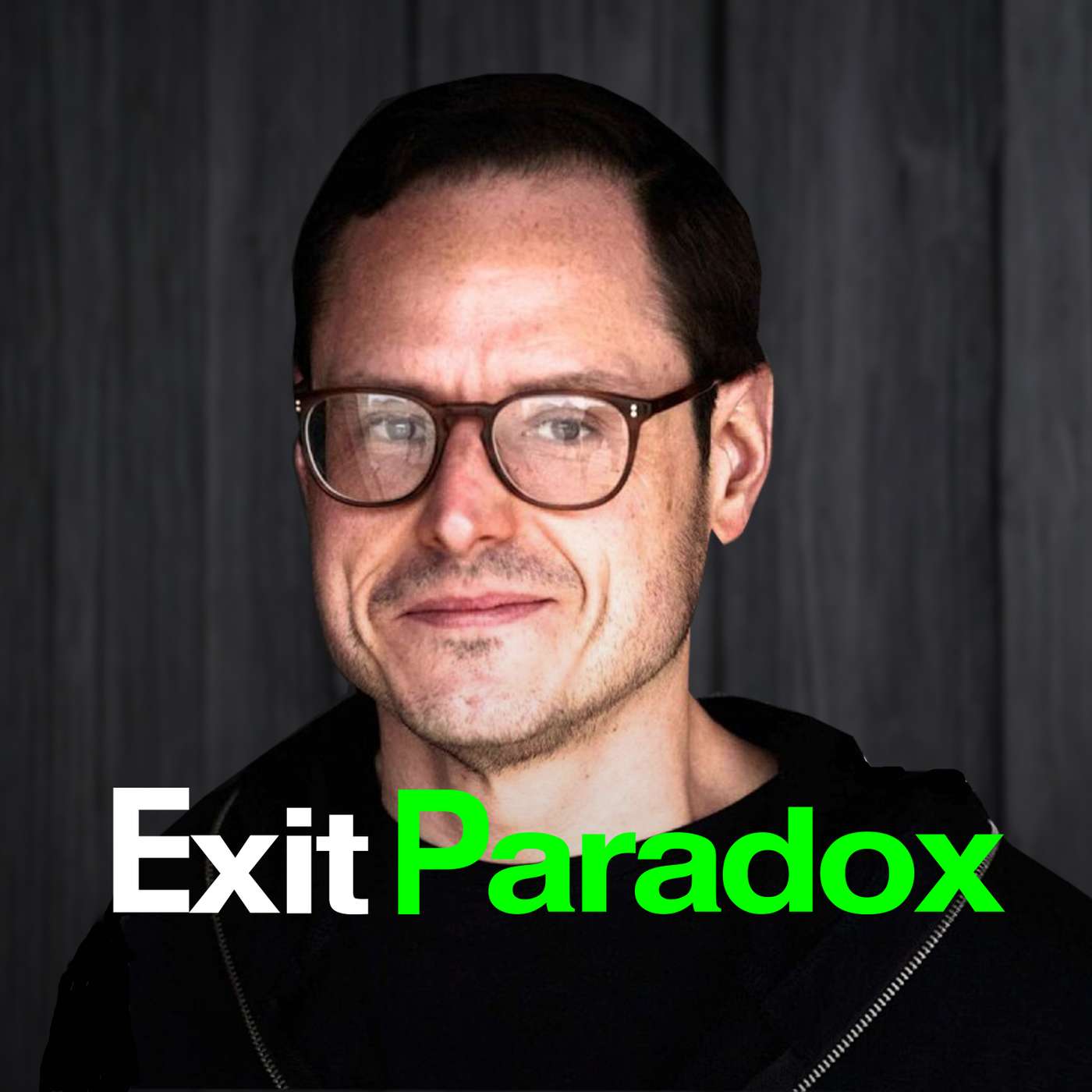
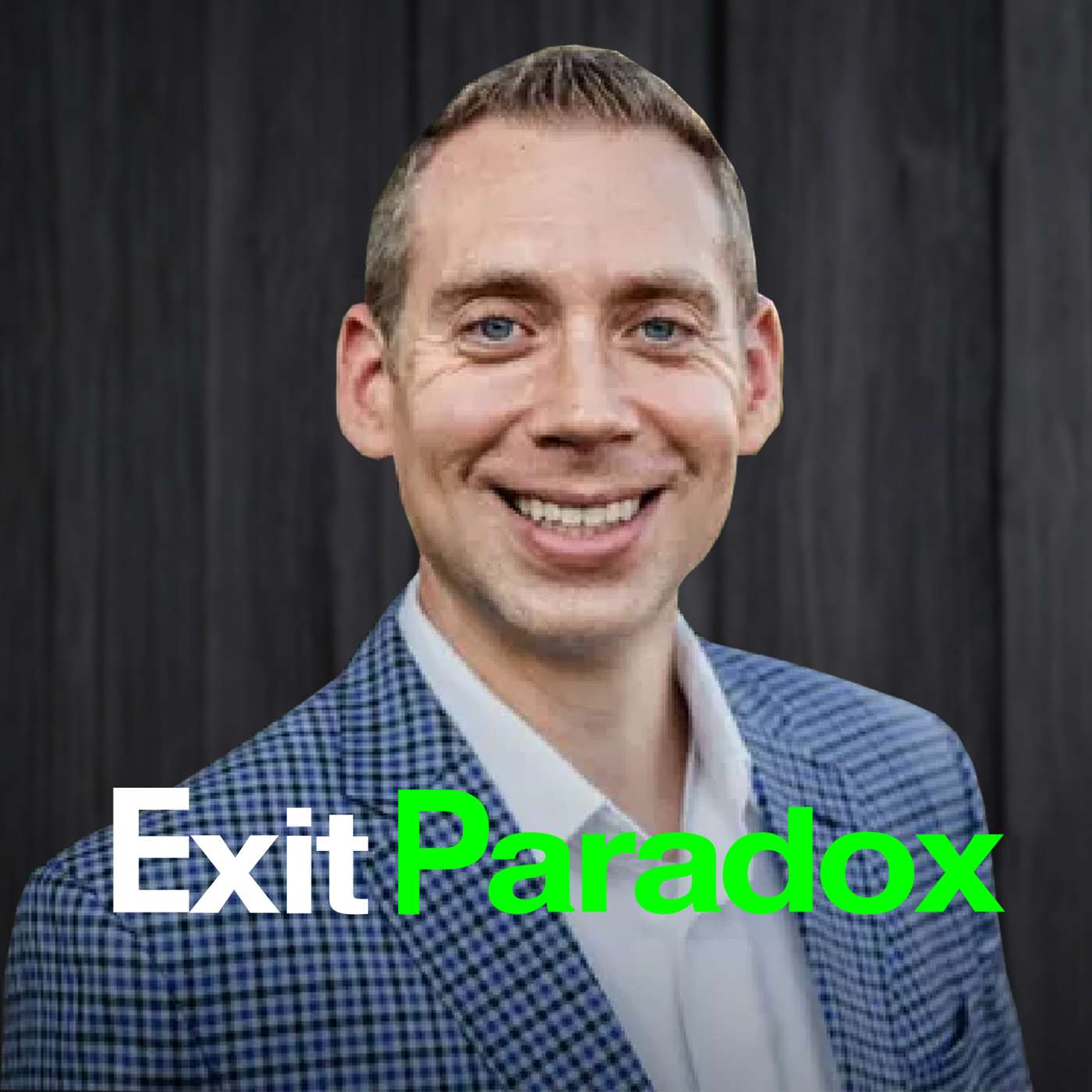
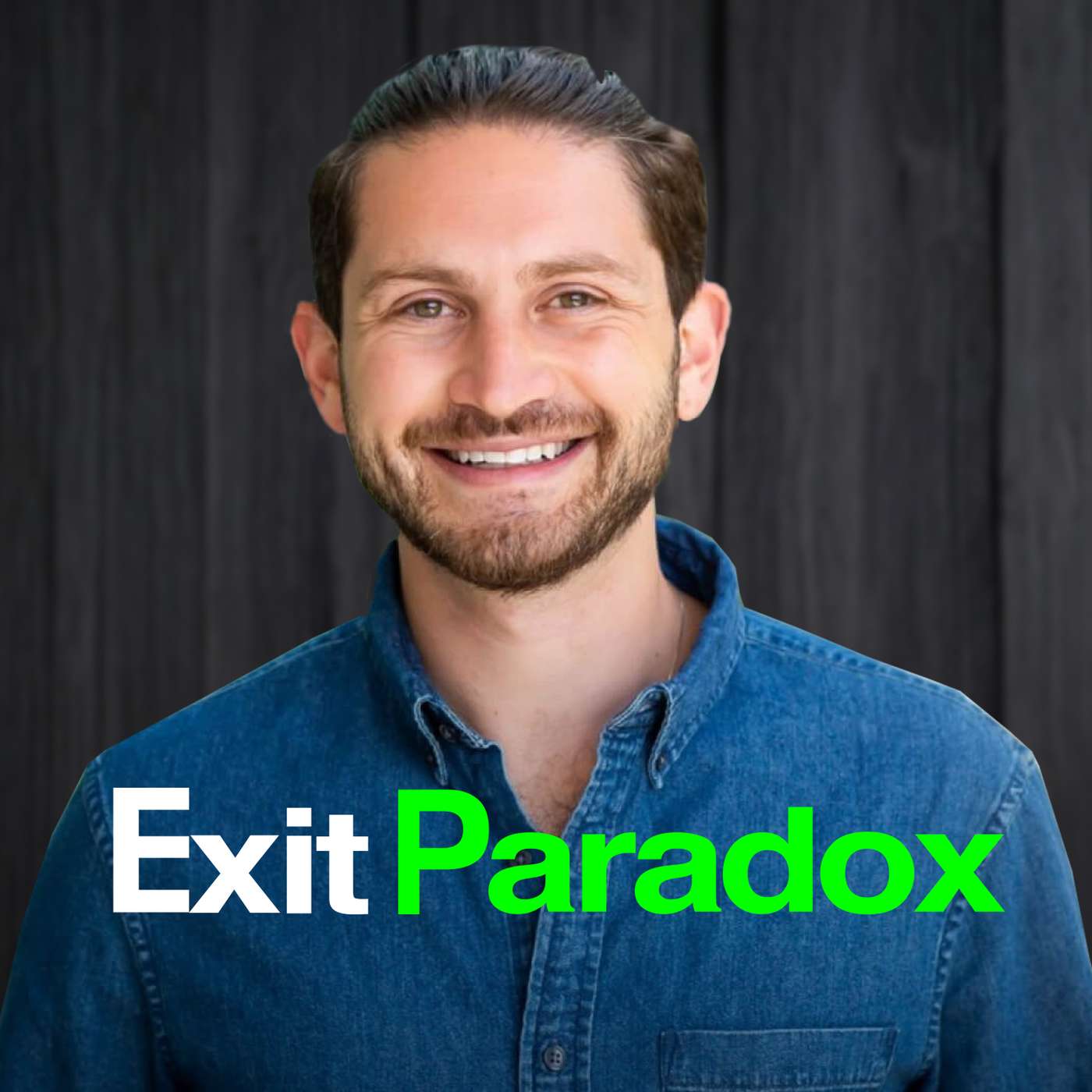
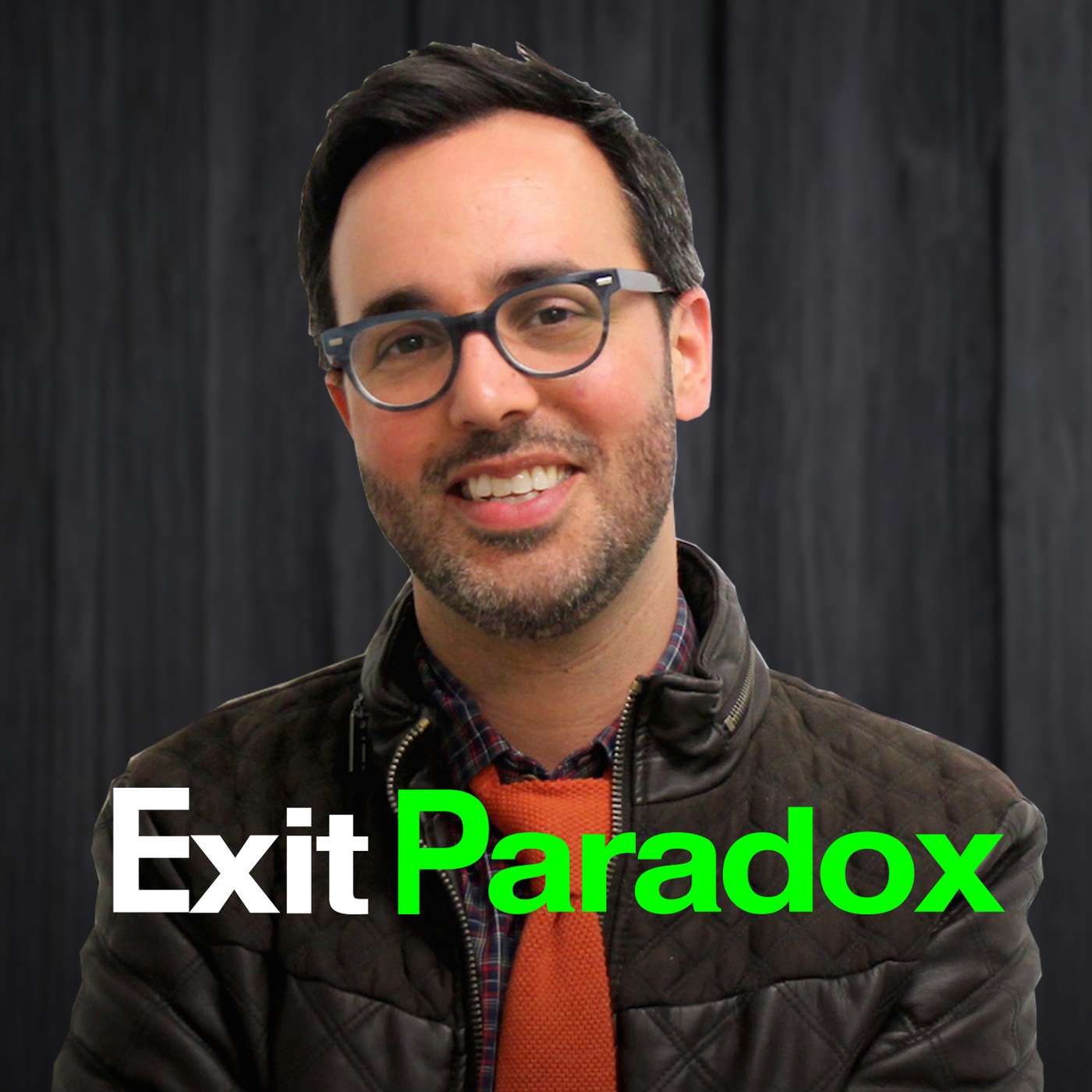
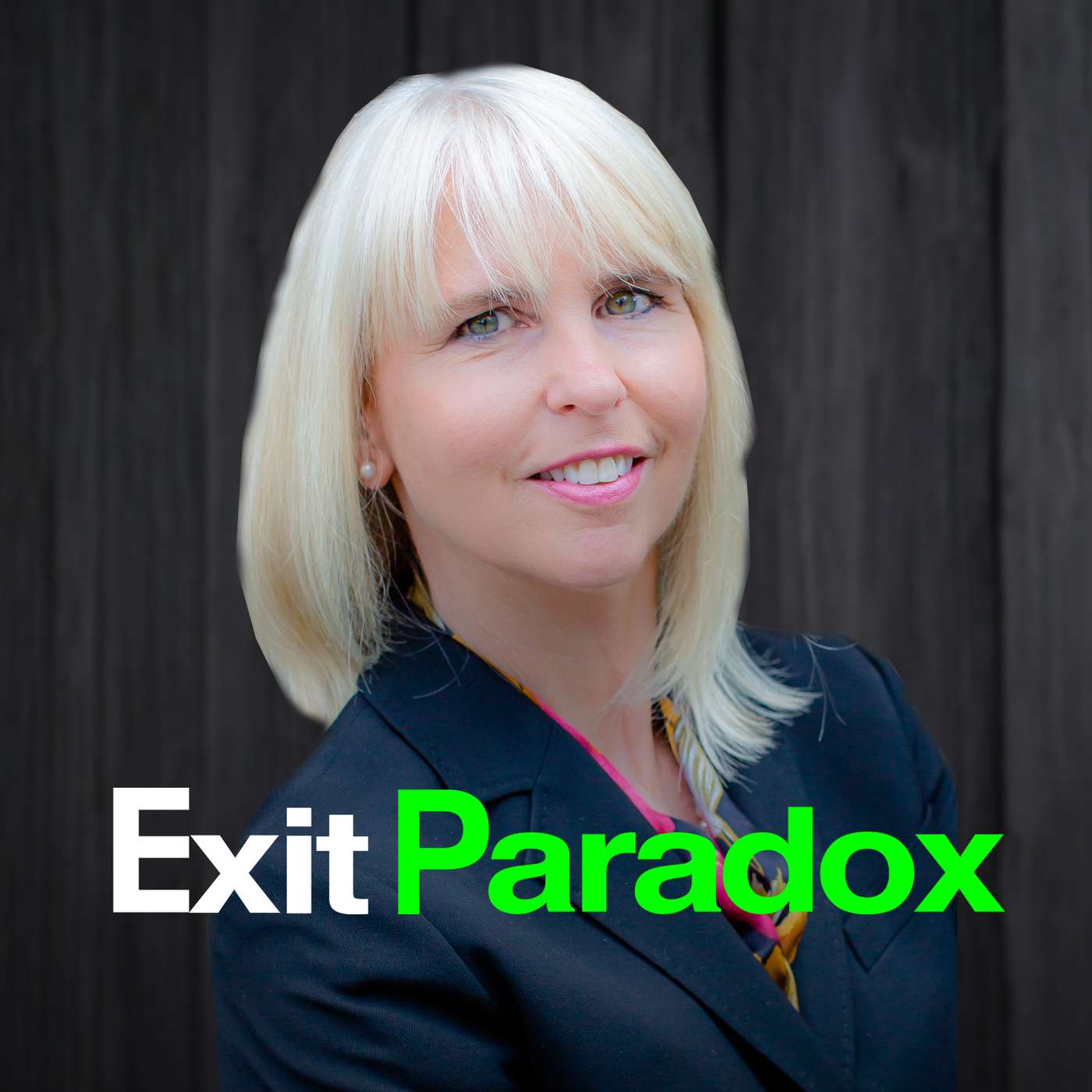
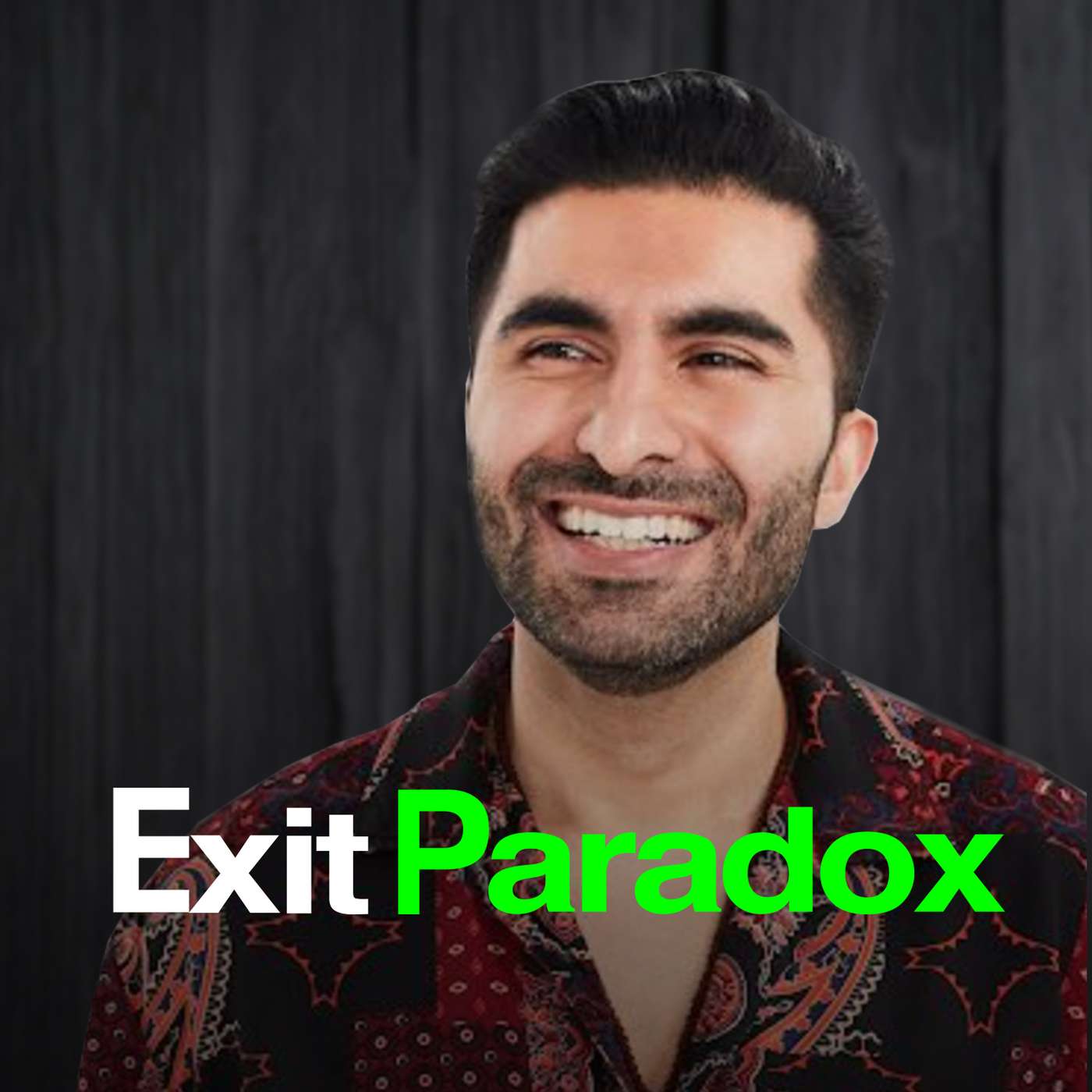
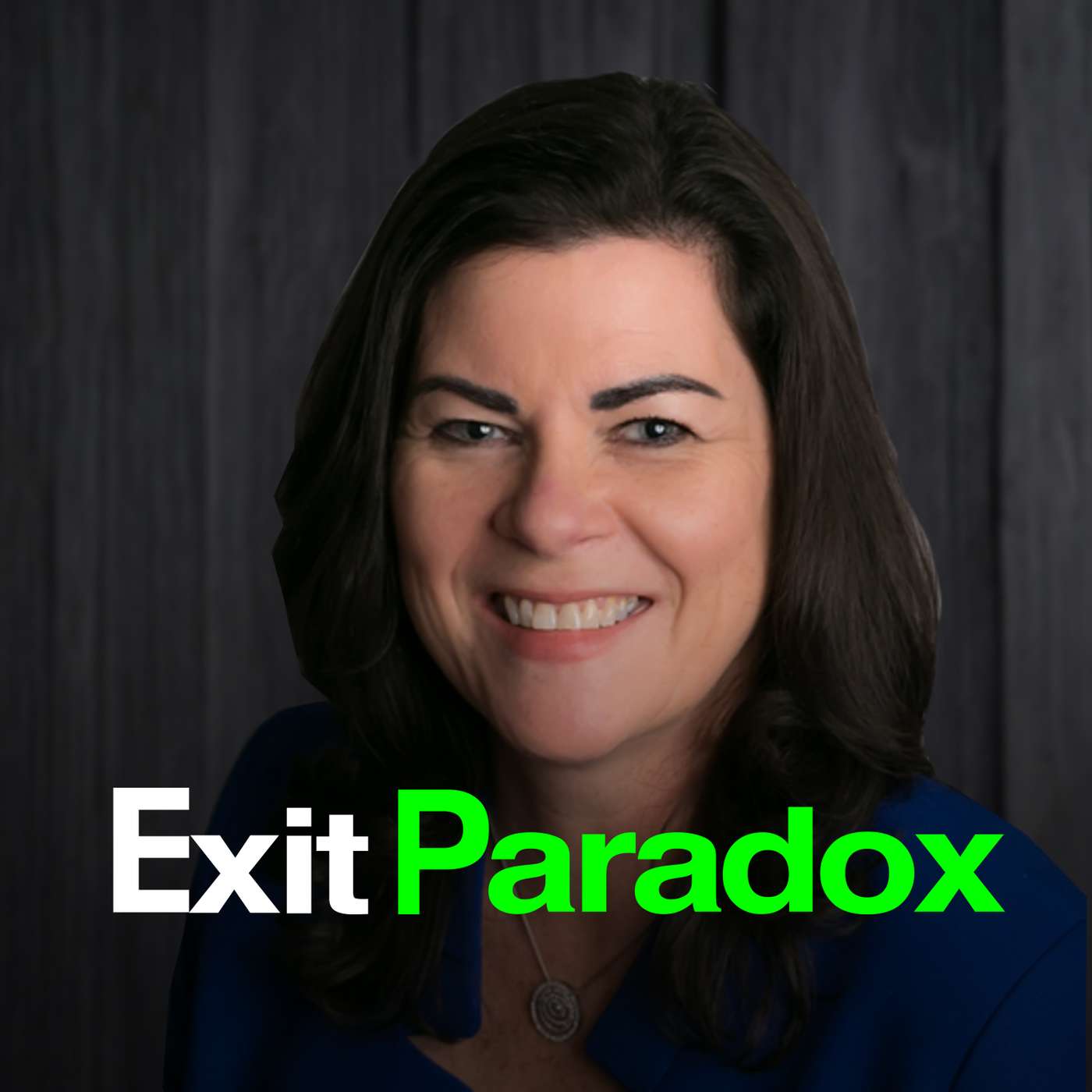


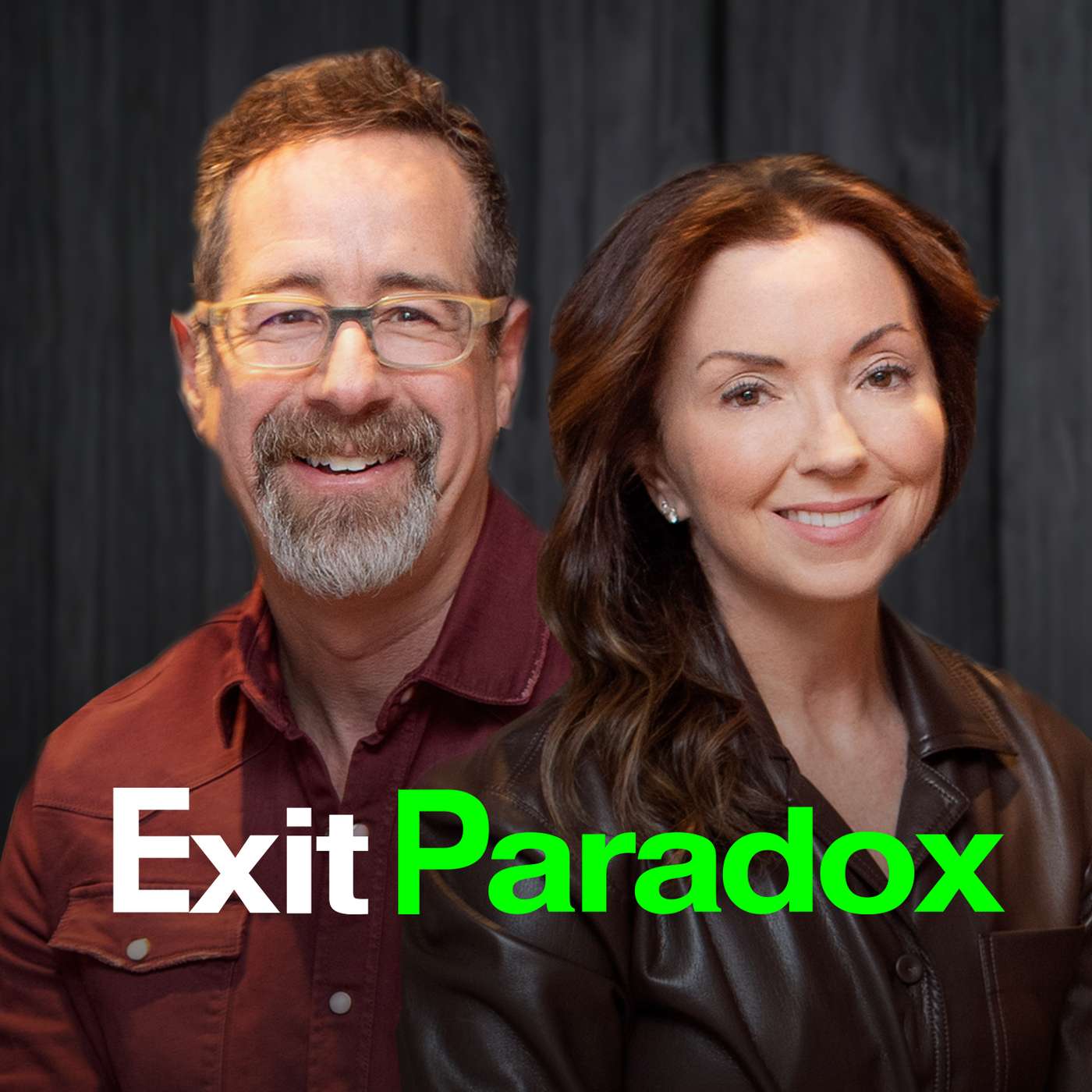
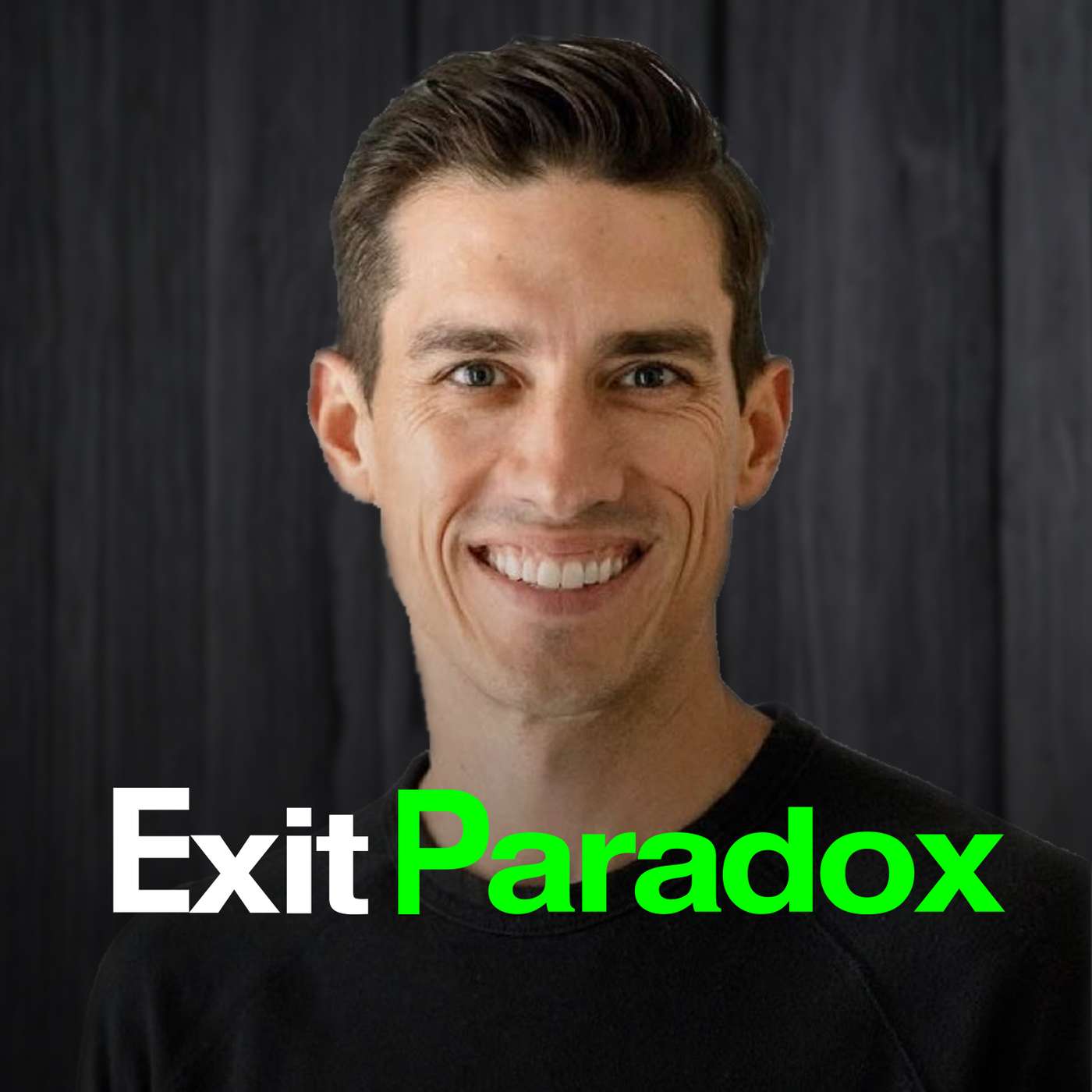
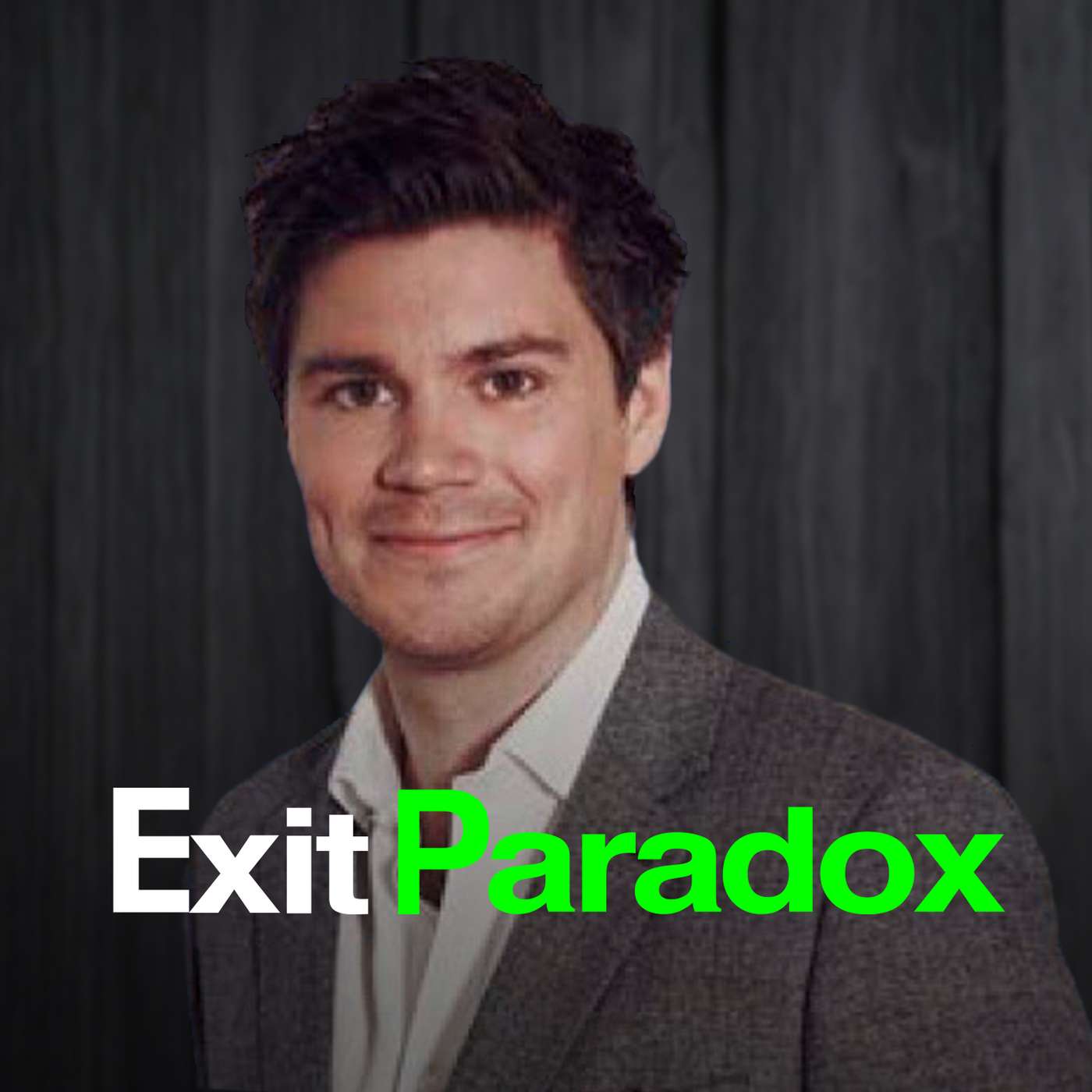
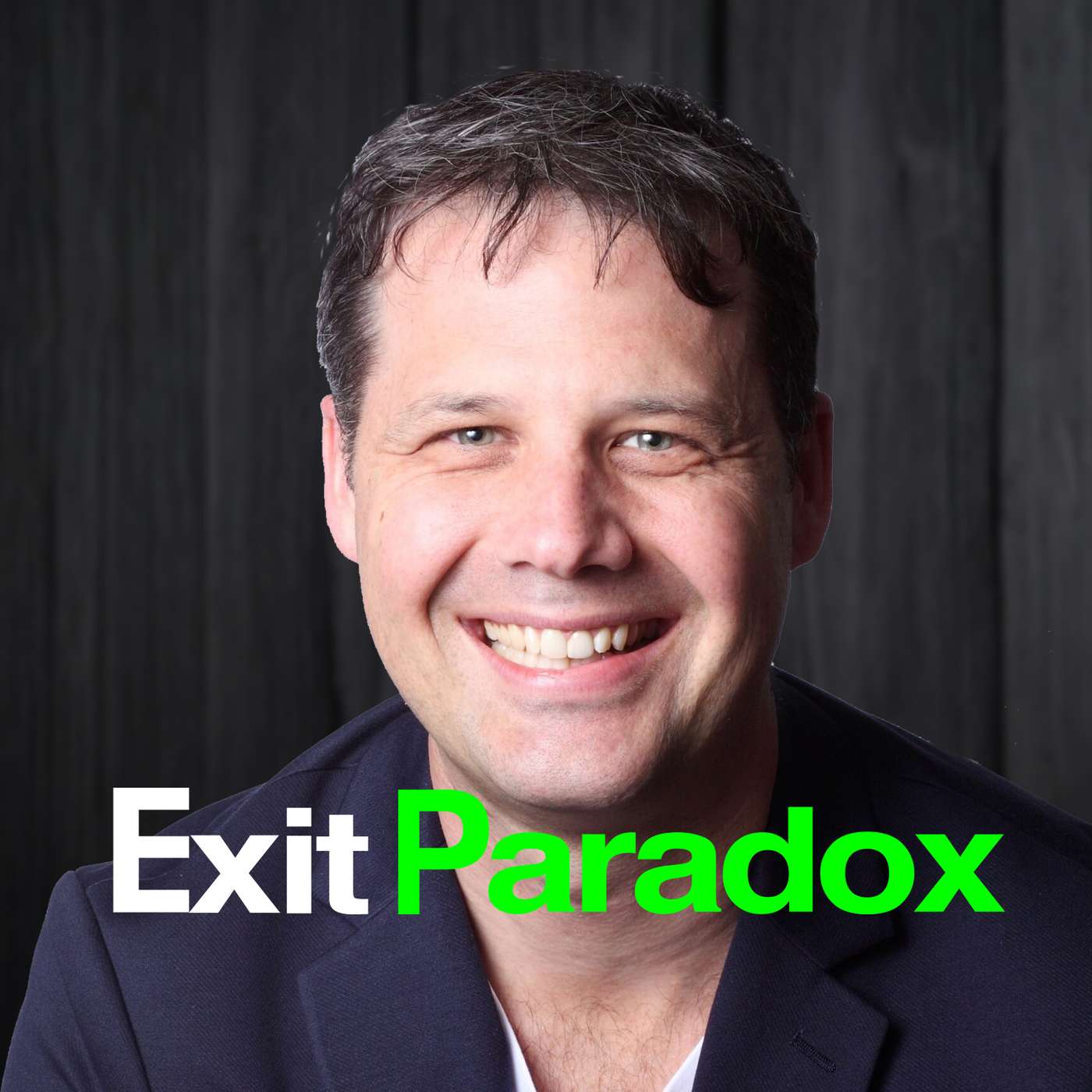
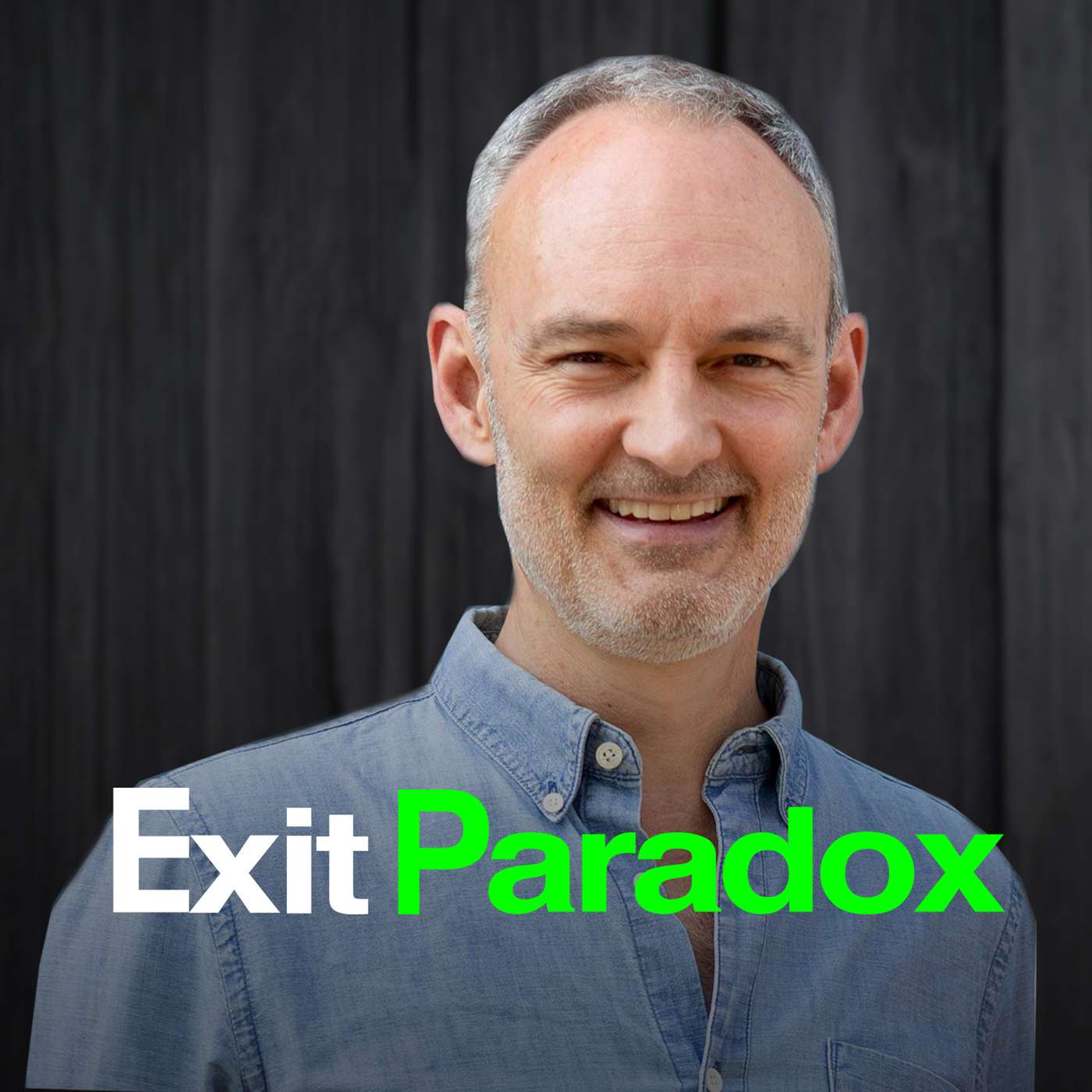
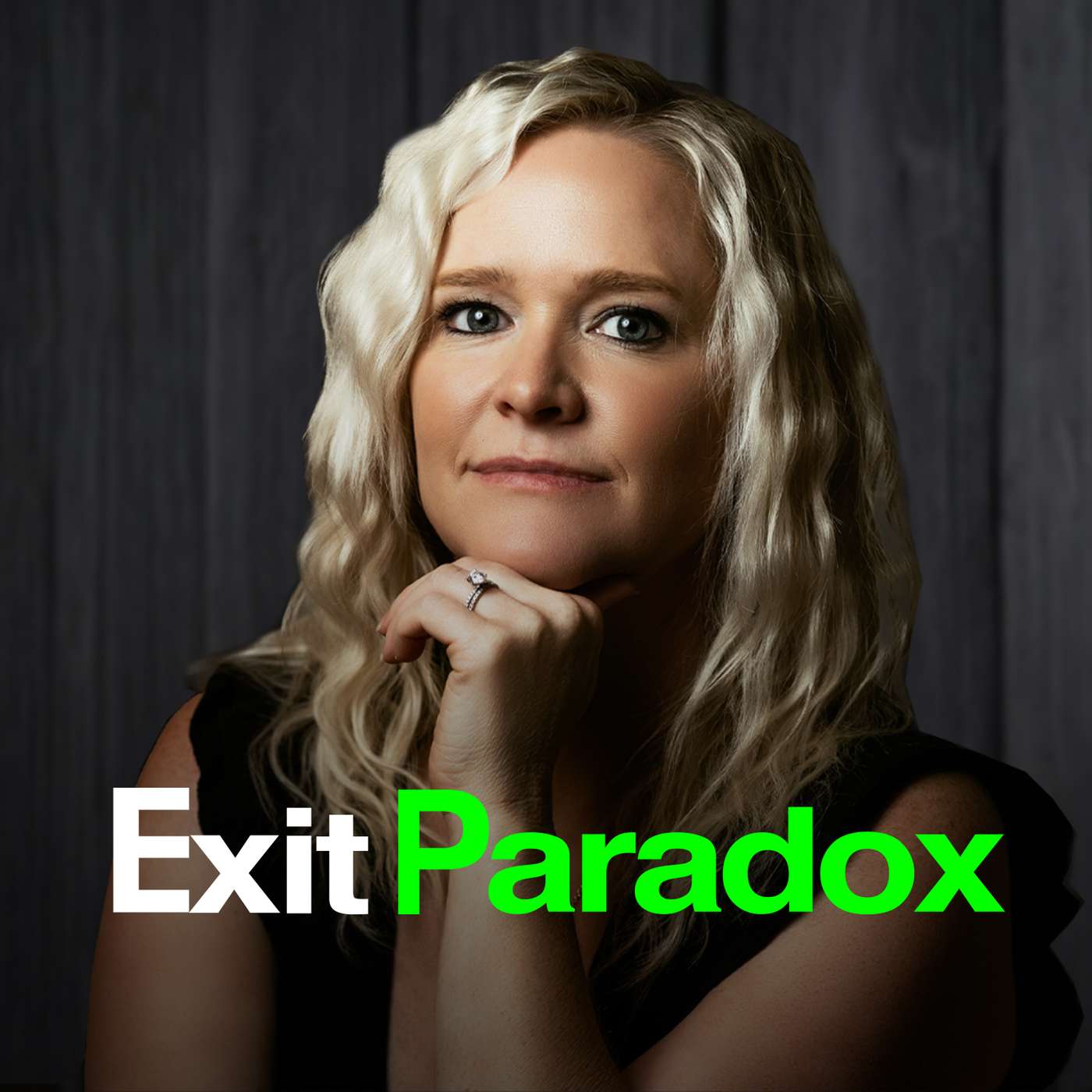
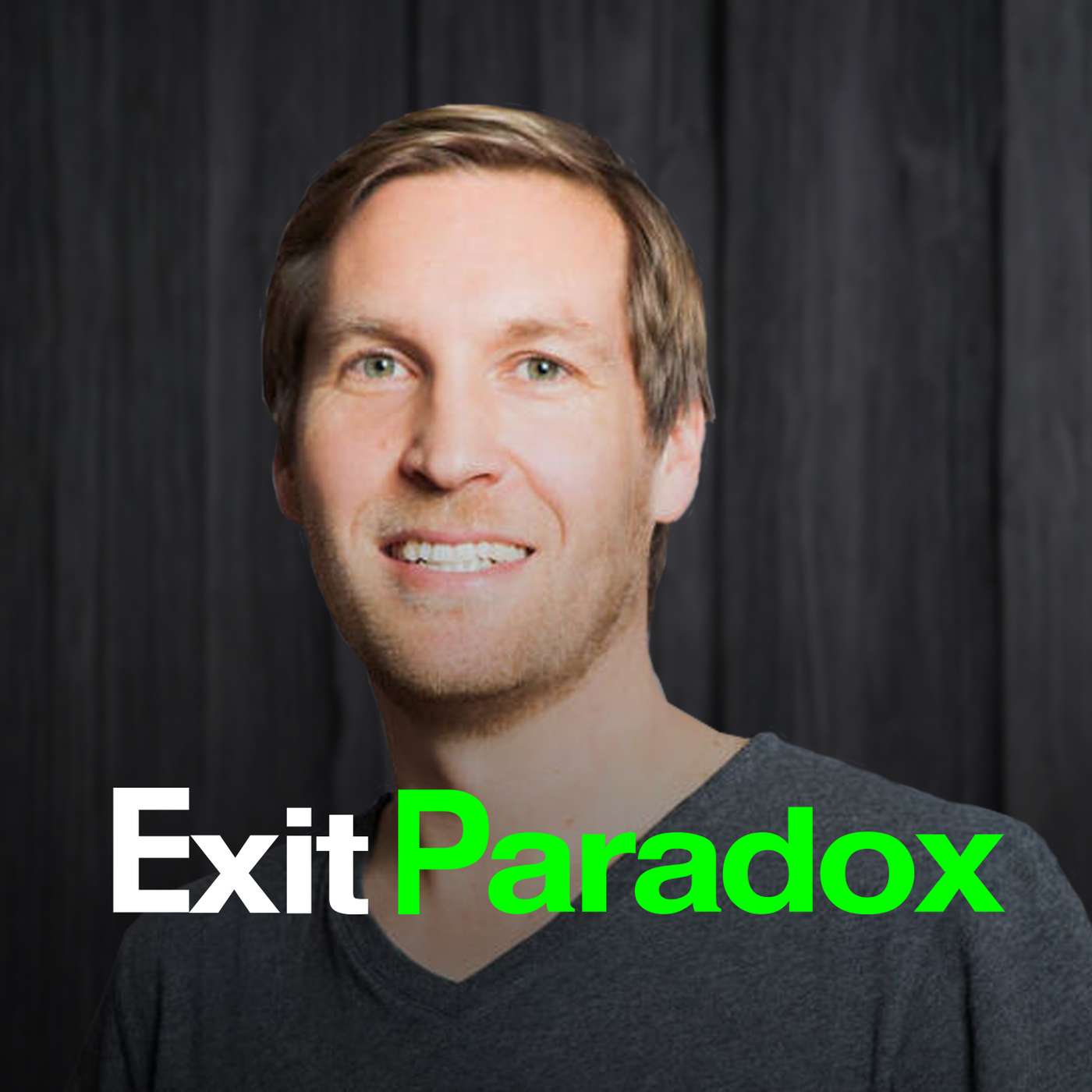
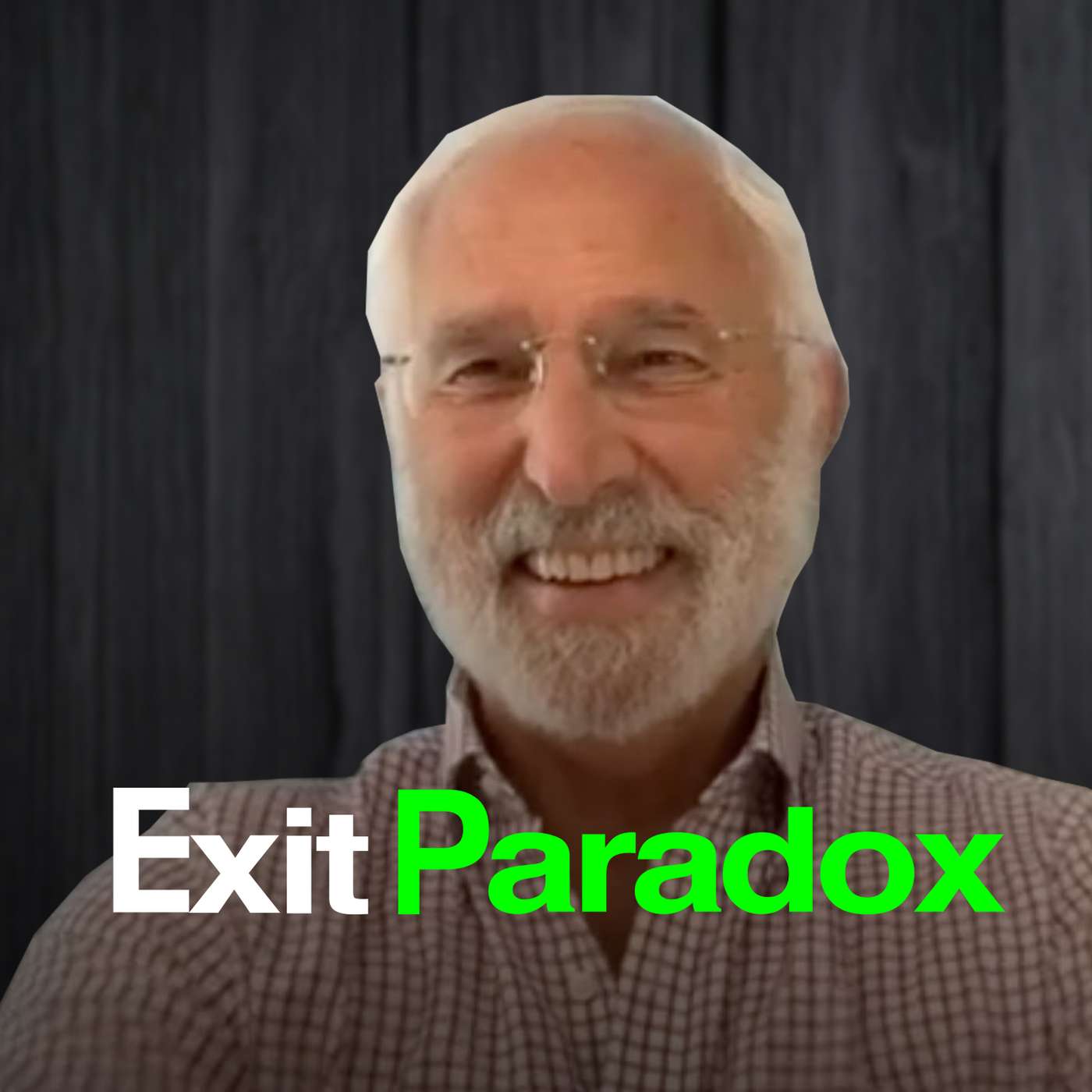
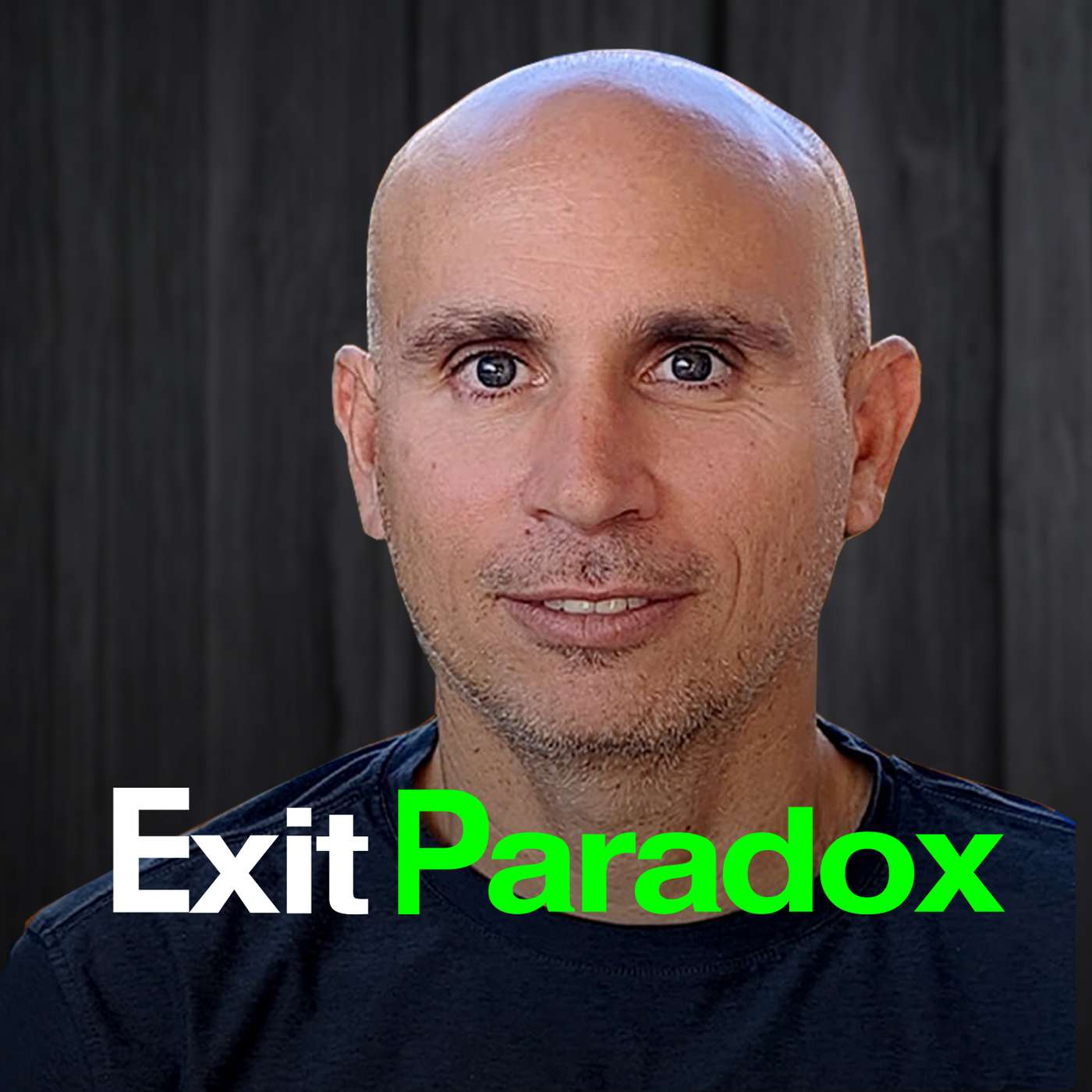
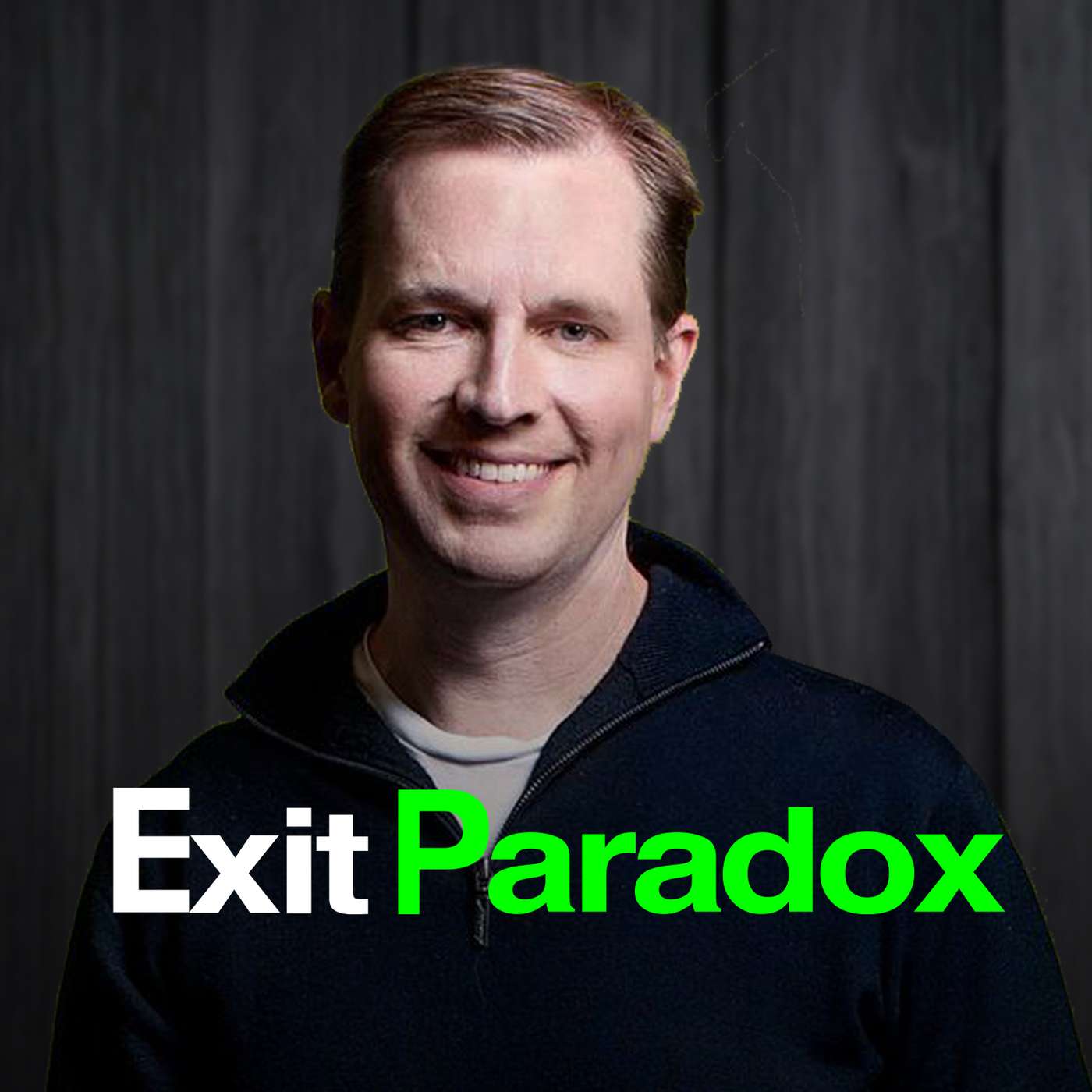
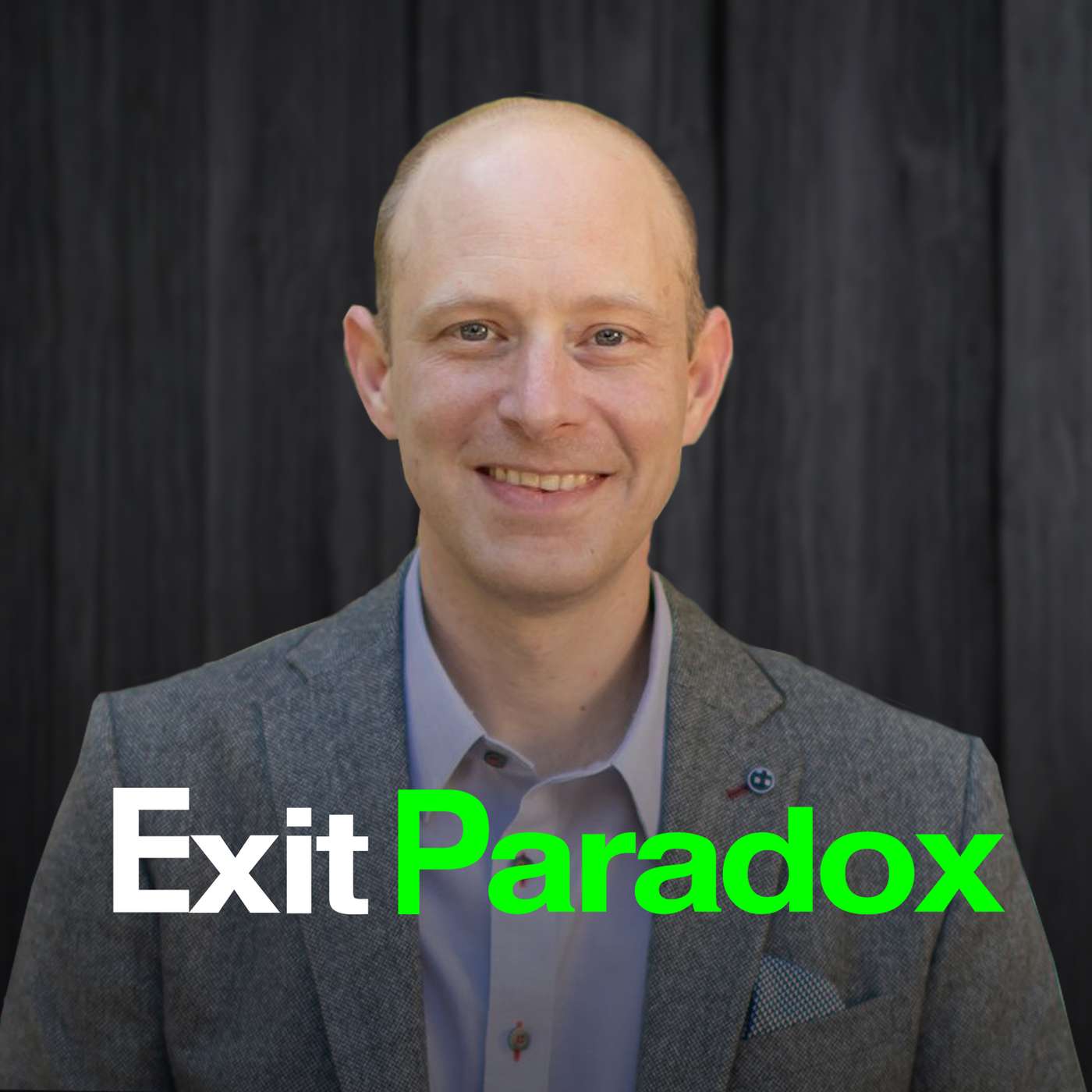



I love my blog https://7brew-menus.us/
Nice
Desfrute de uma experiência de jogo emocionante com uma coleção diversificada de jogos de bolinhas de gude e jogos de caça-níqueis.Website: https://jili707.casino/
[Replica Hublot](https://www.replicahublot.io)
“Incredible insights from Barak Kaufman — it’s refreshing to hear real data and experiences from thousands of founders instead of just success stories. Love the focus on what actually drives sustainable post-exit impact.” https://8171.agahi.org.pk/
The padcasts are too long so they are boring it is better they be one minute